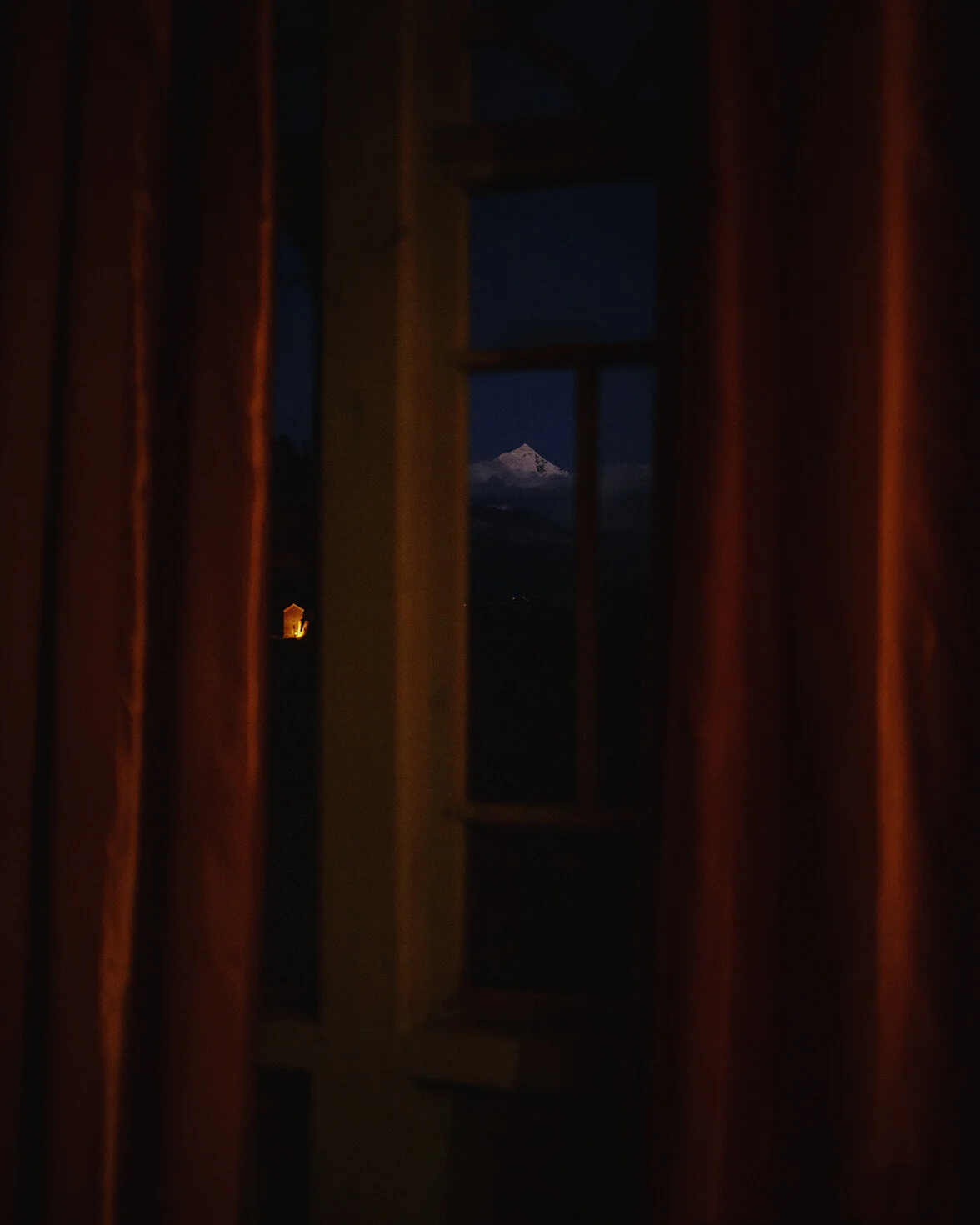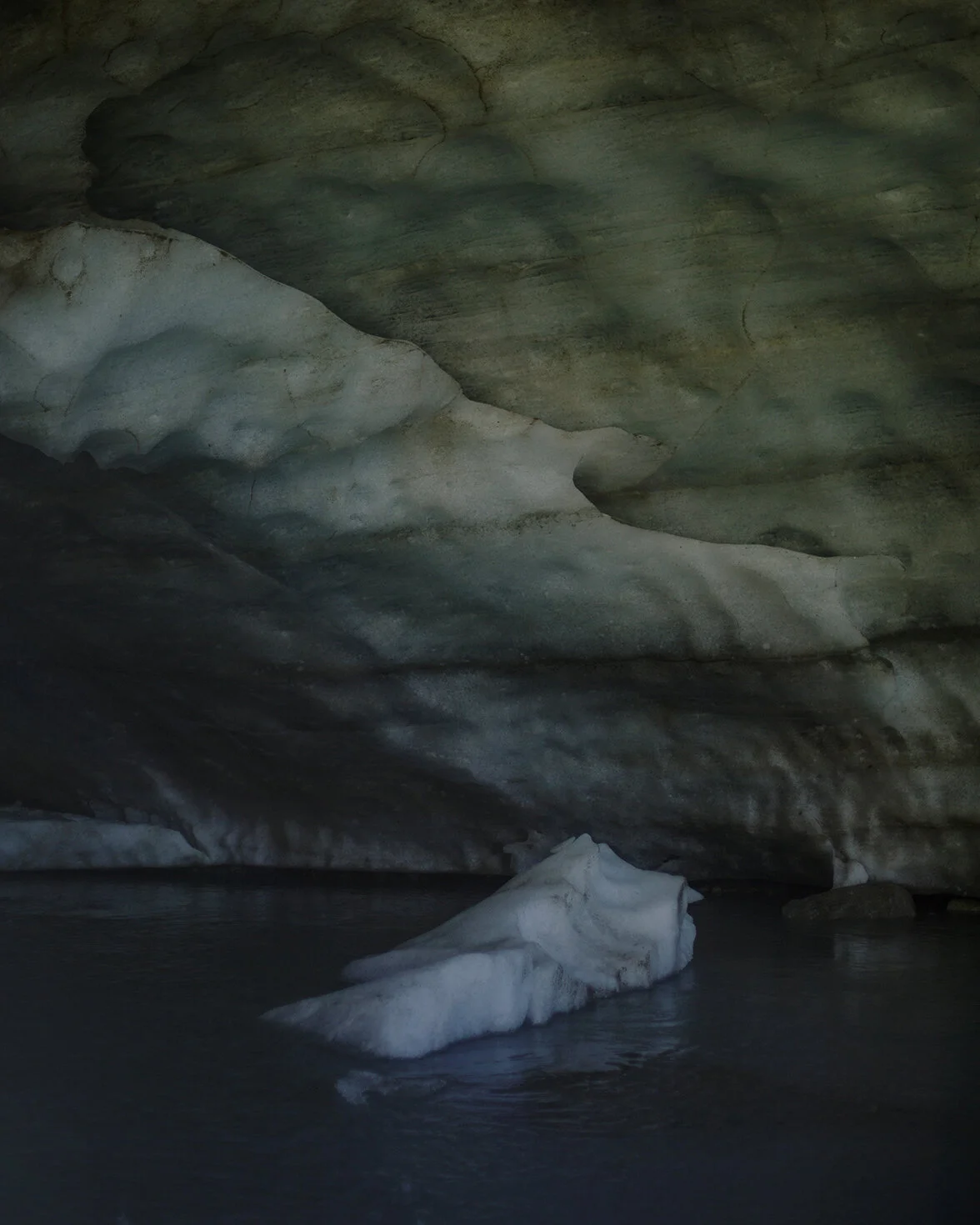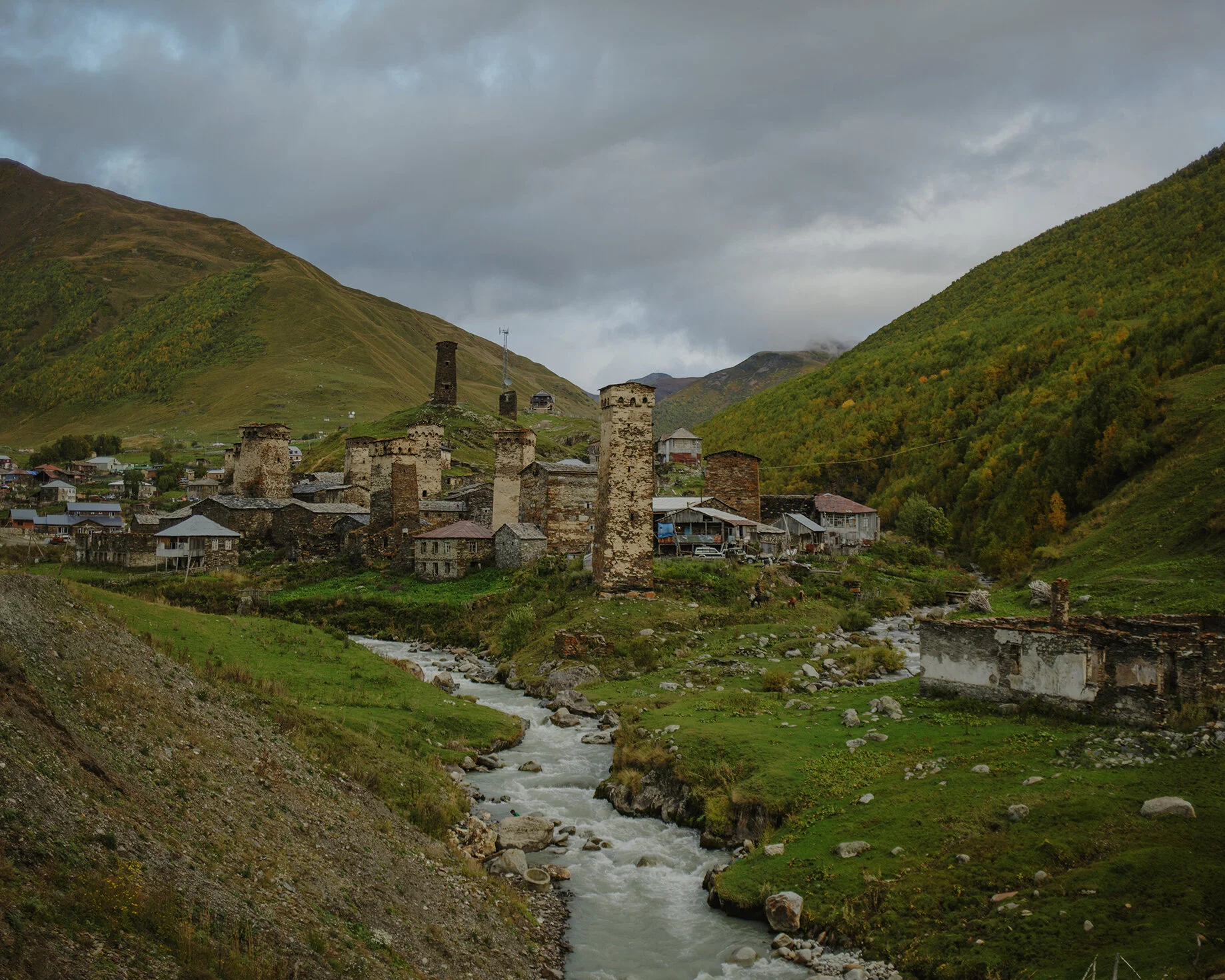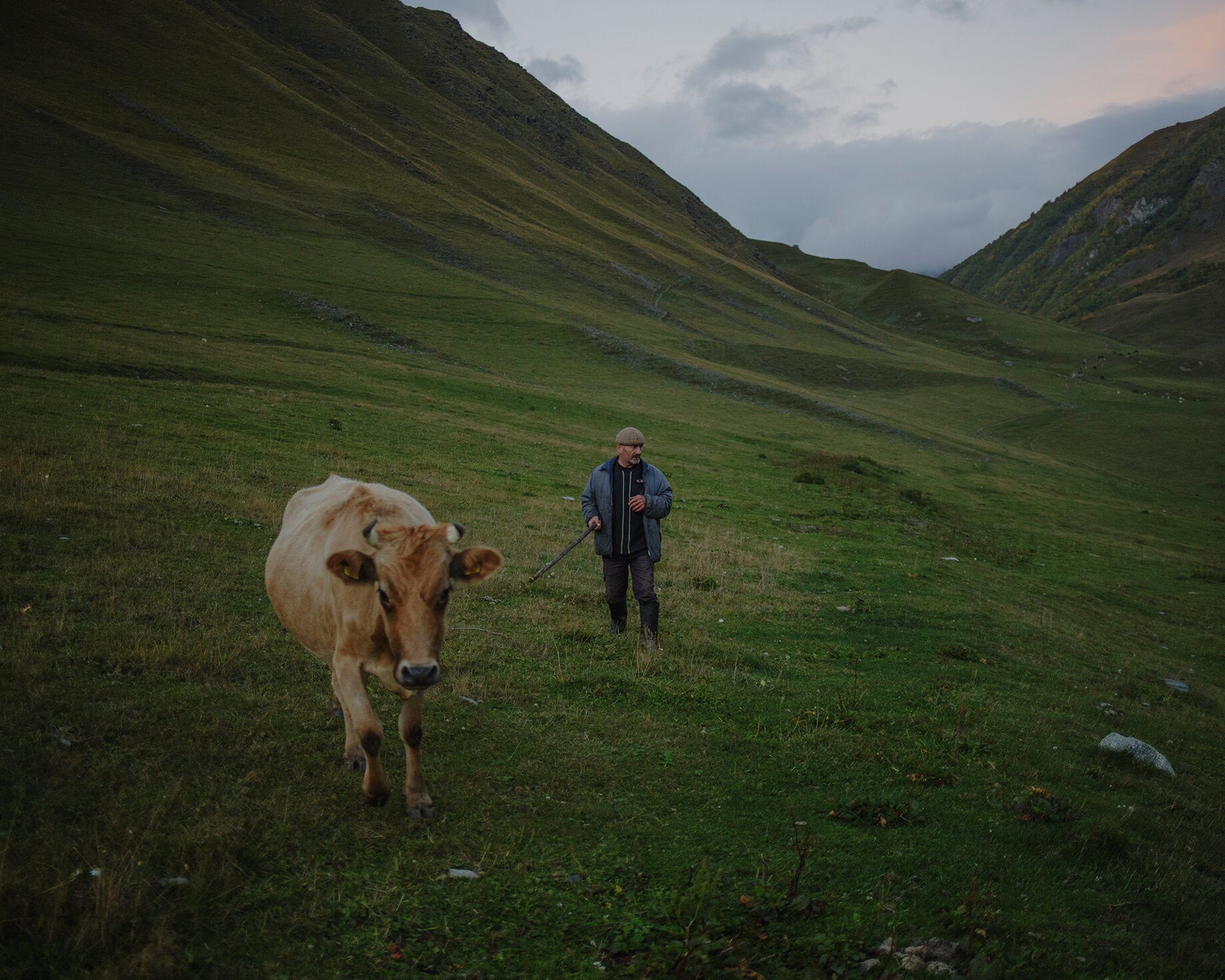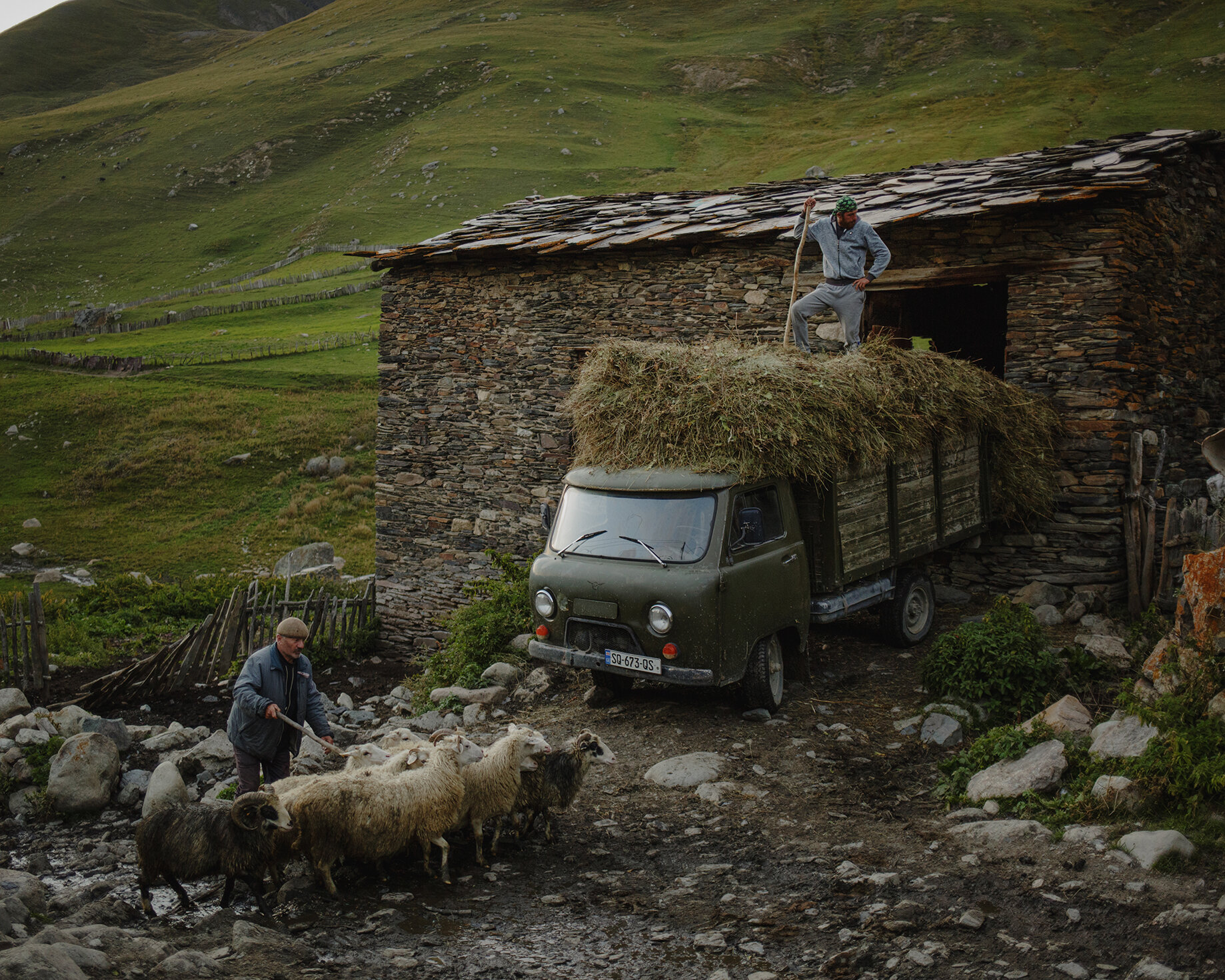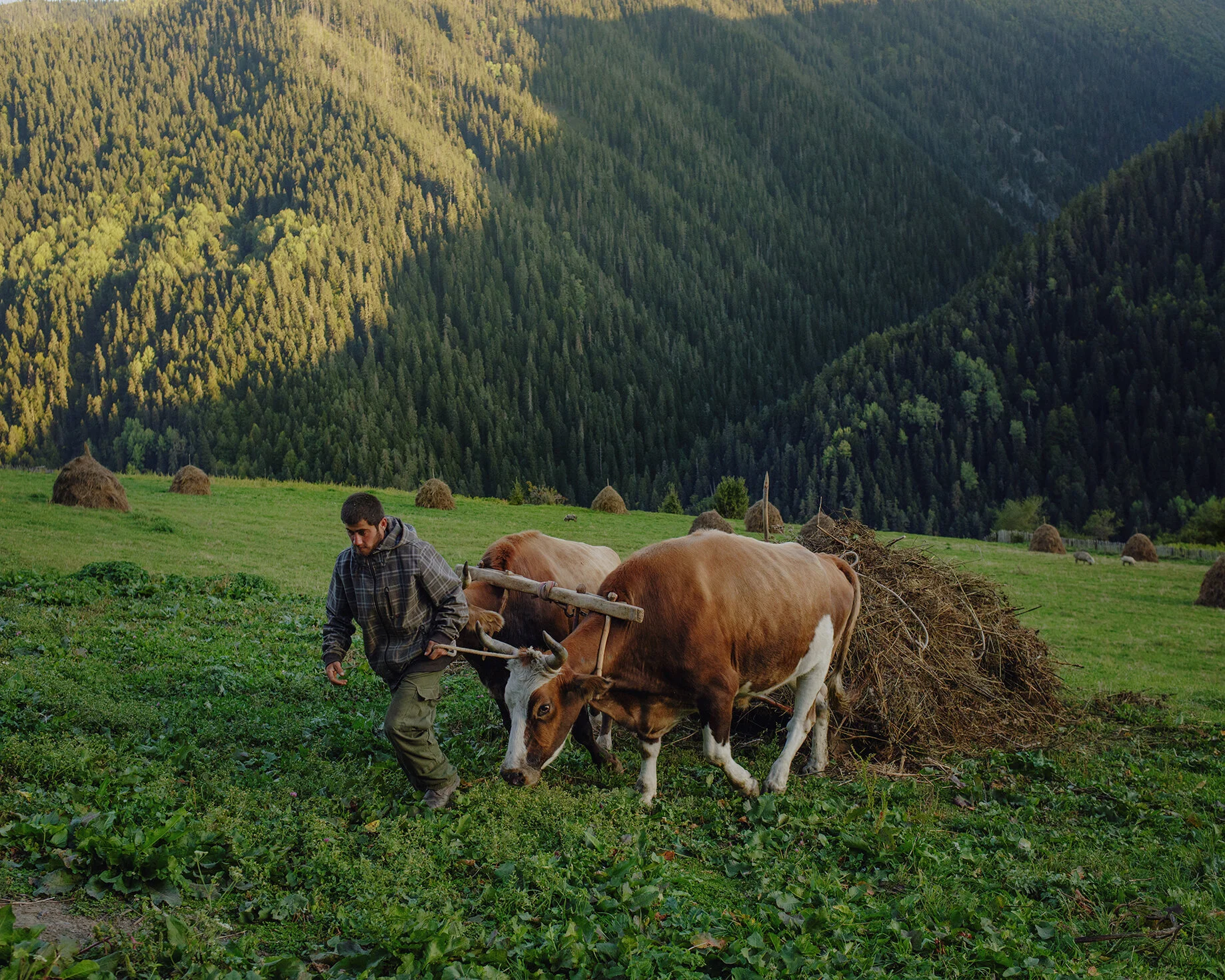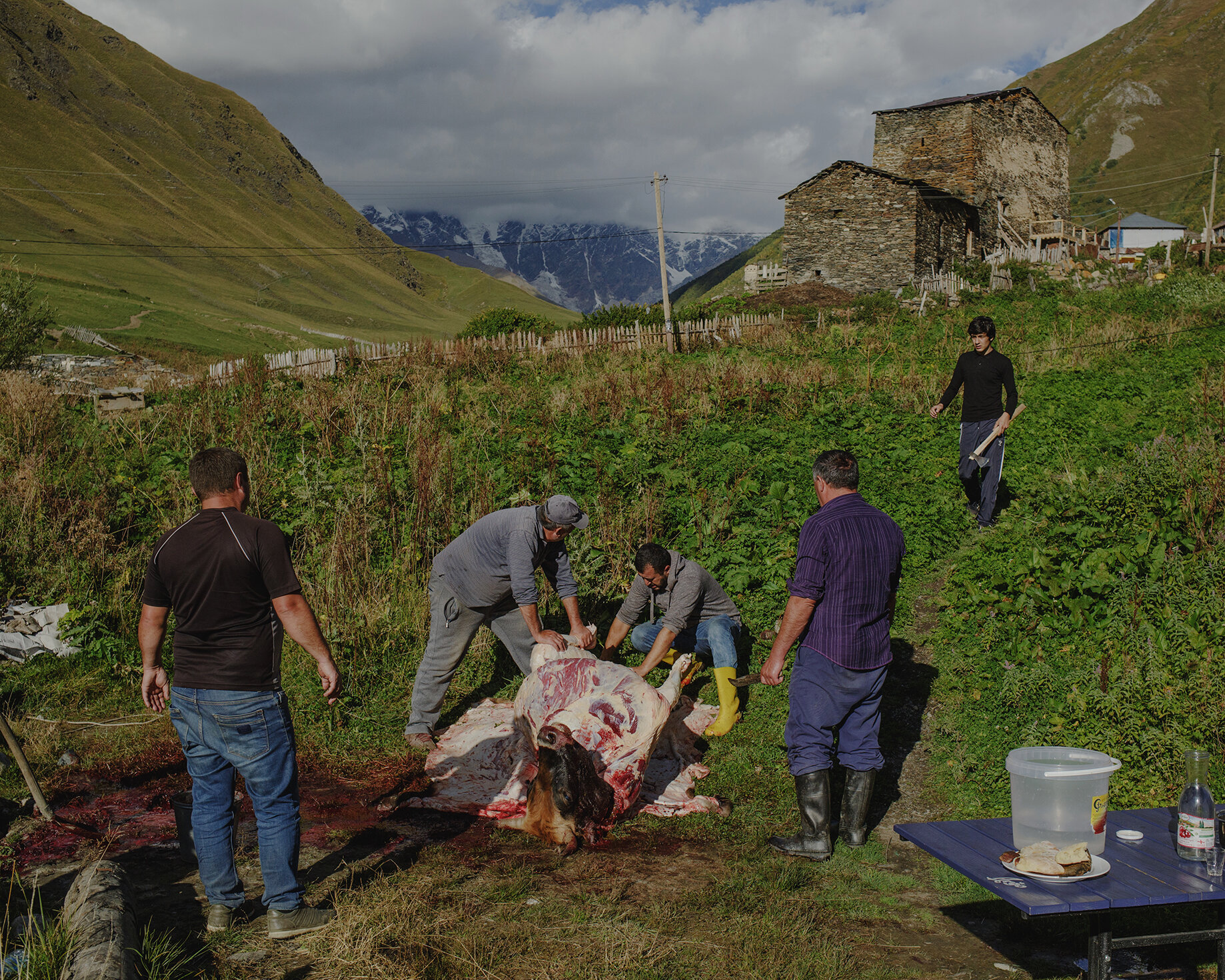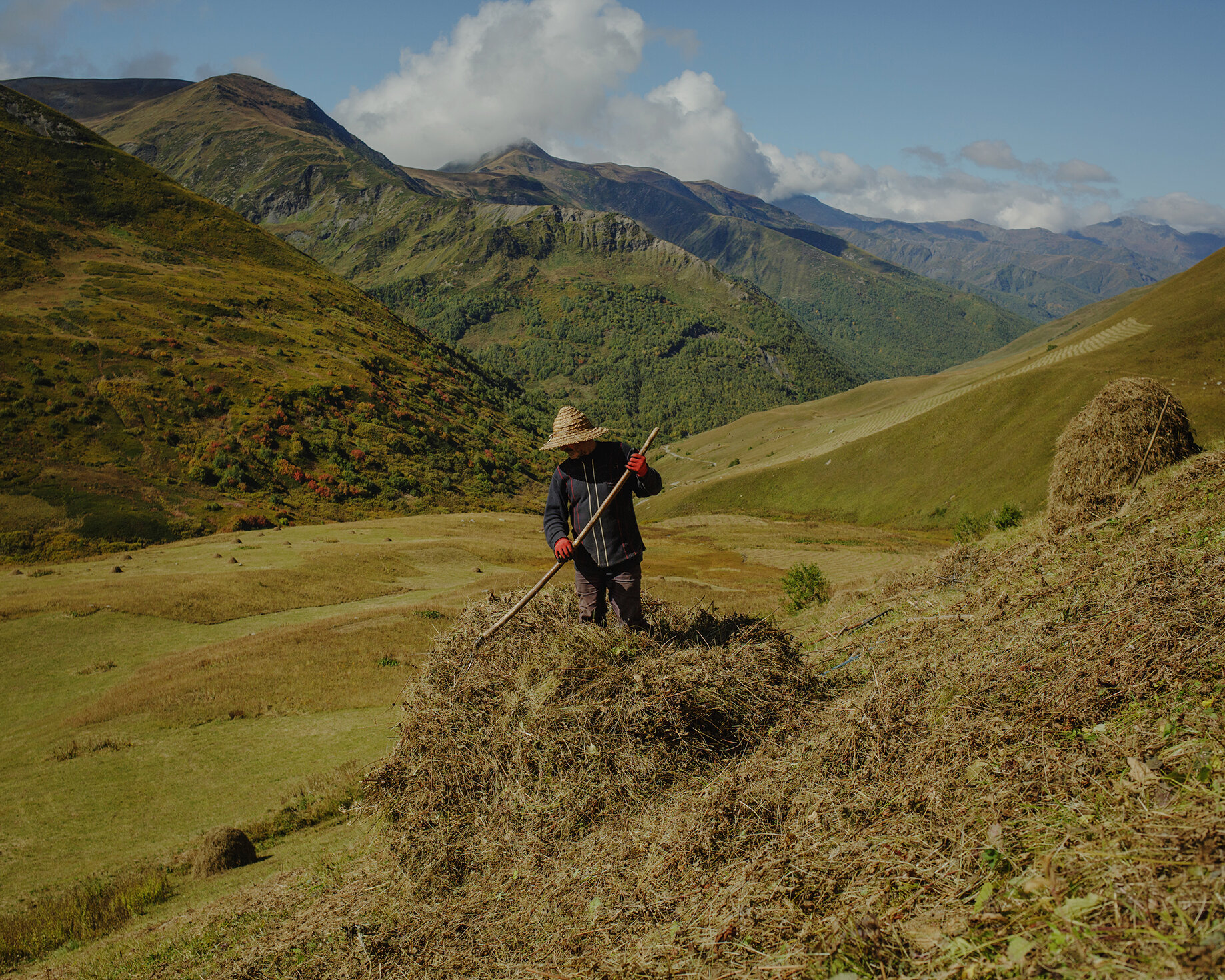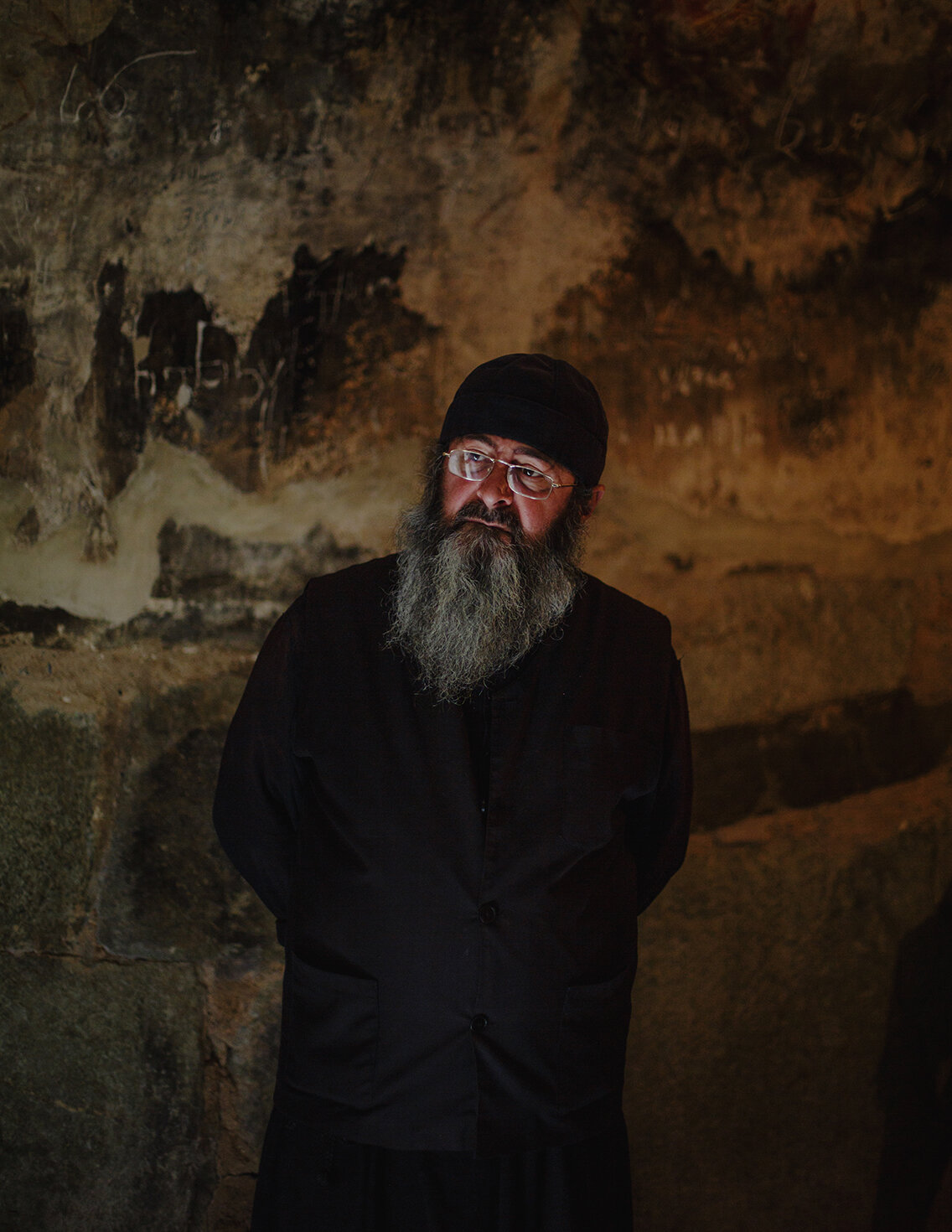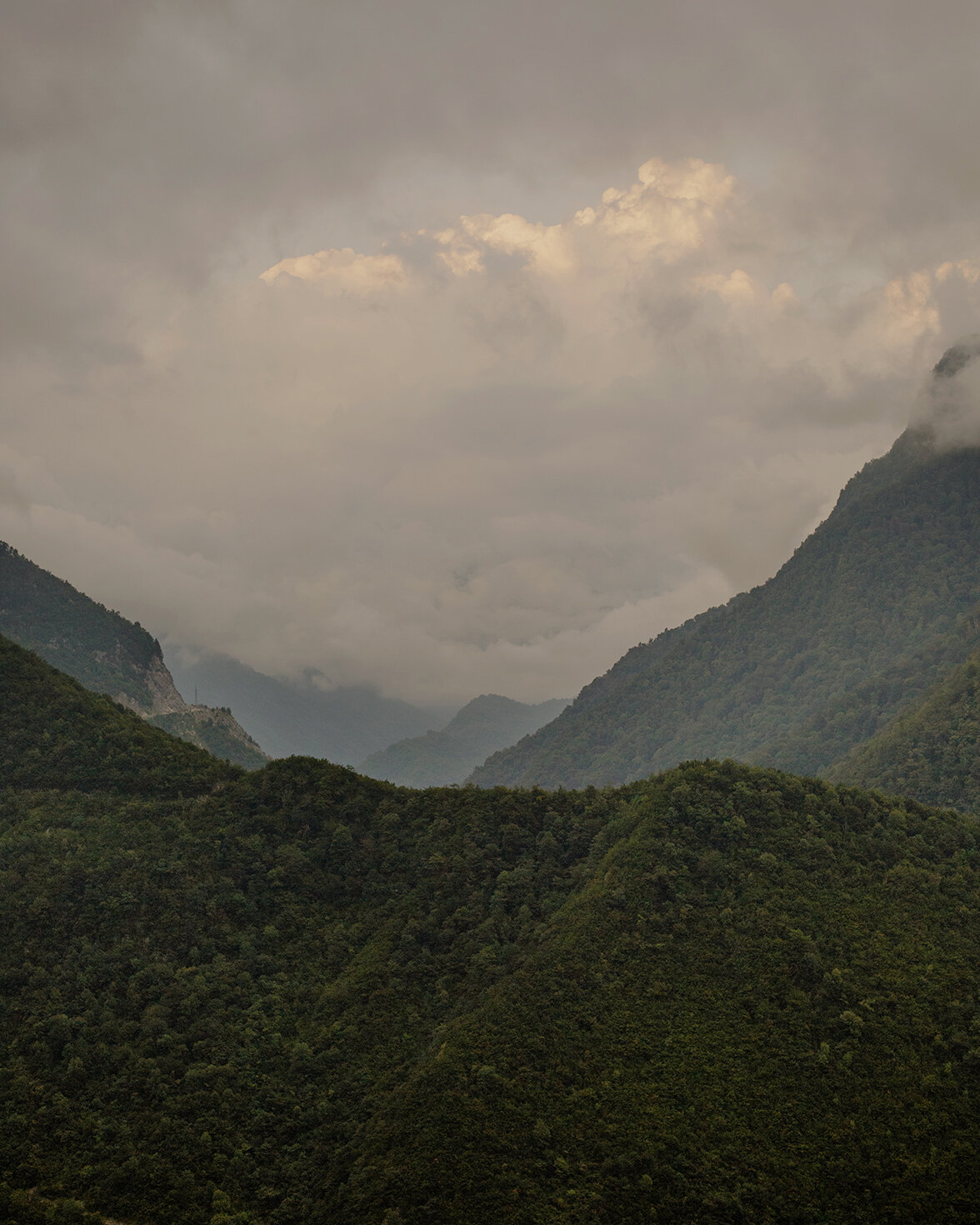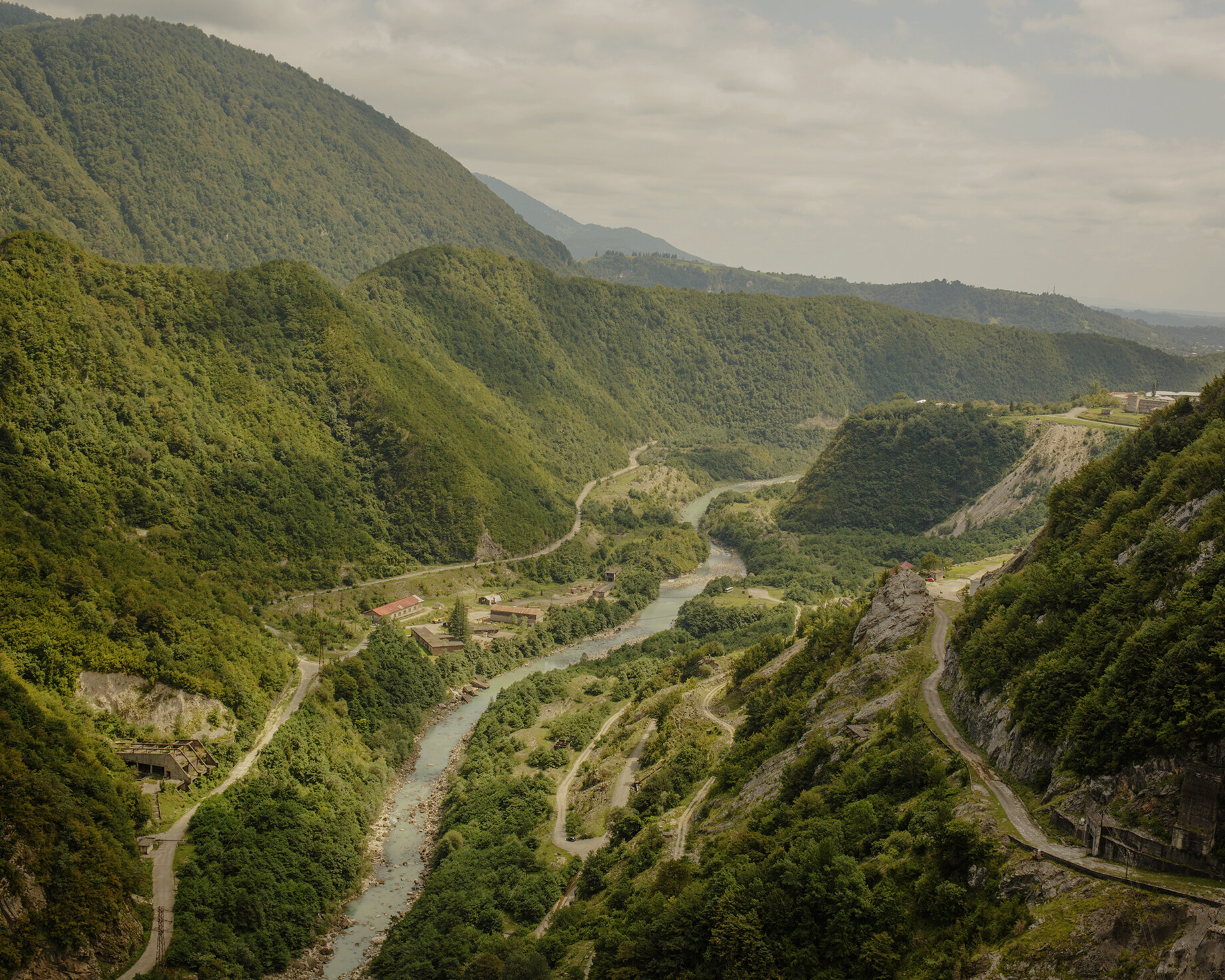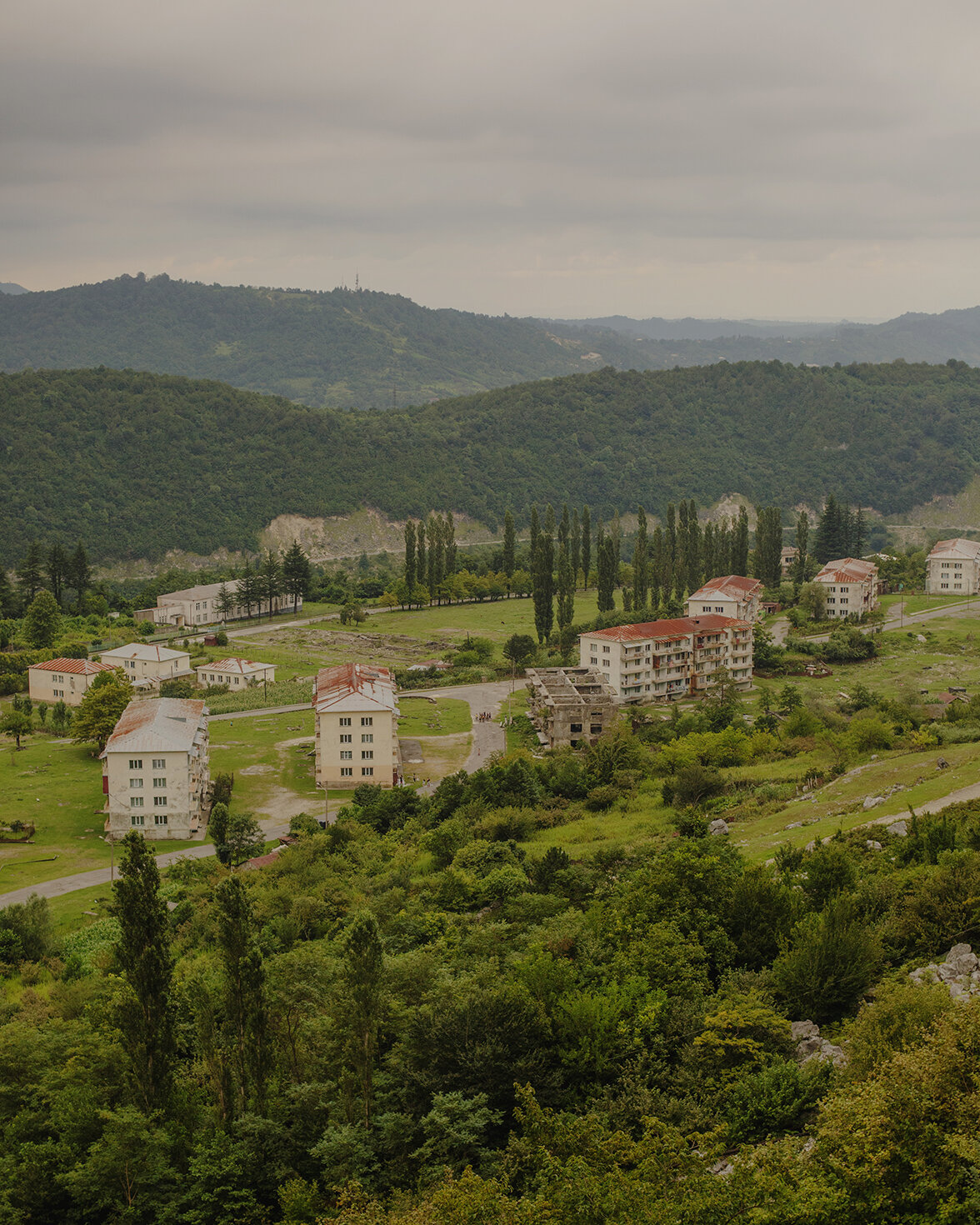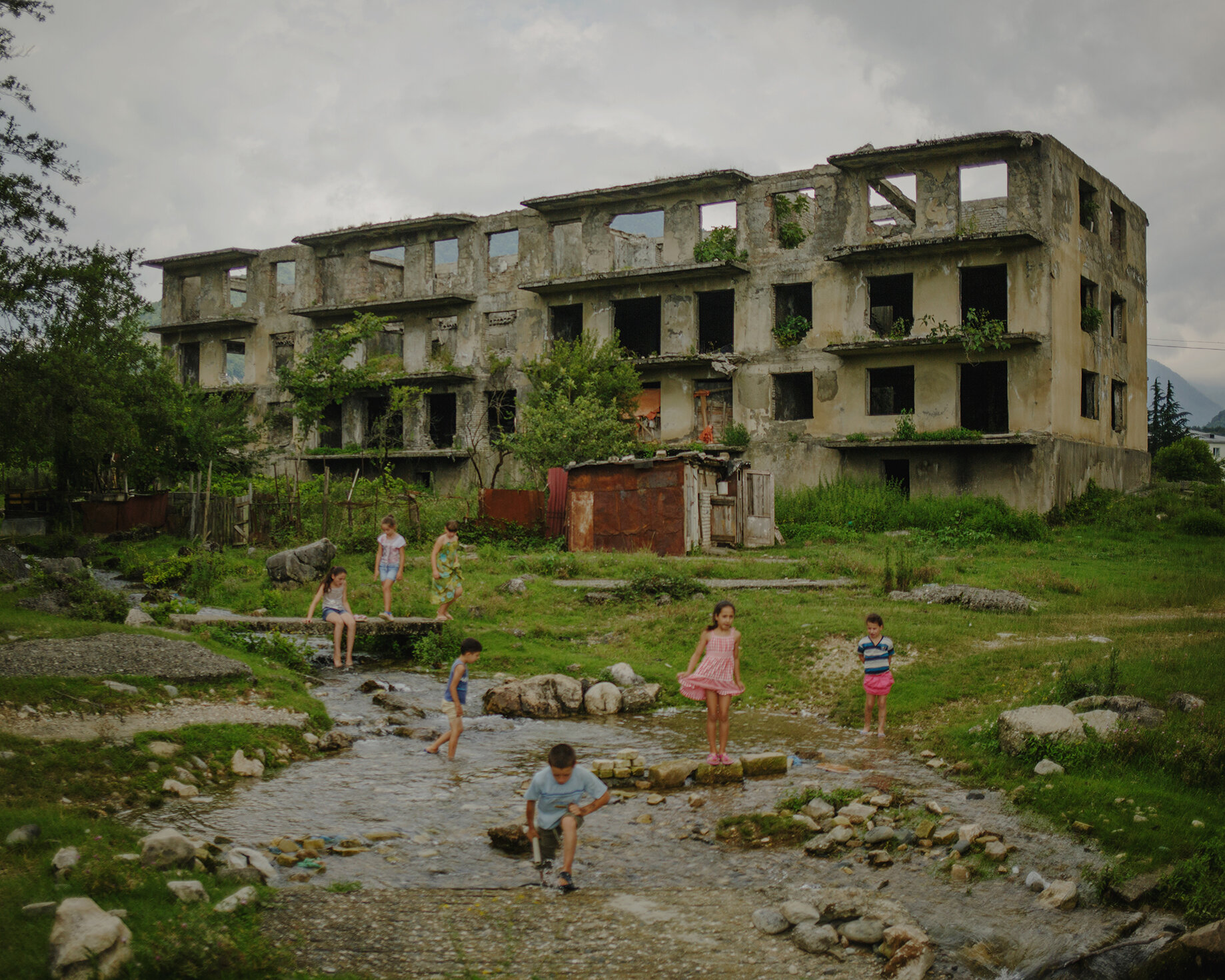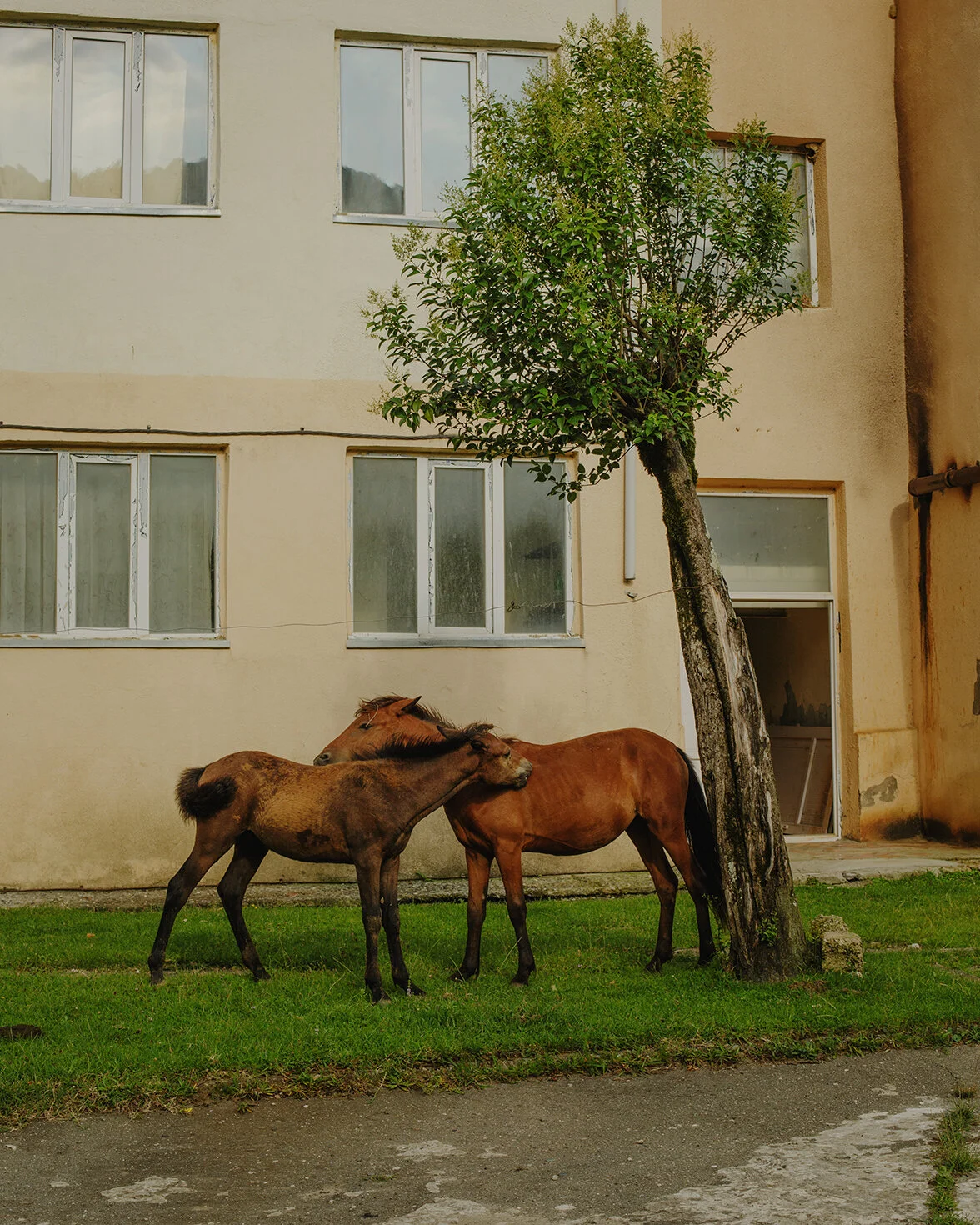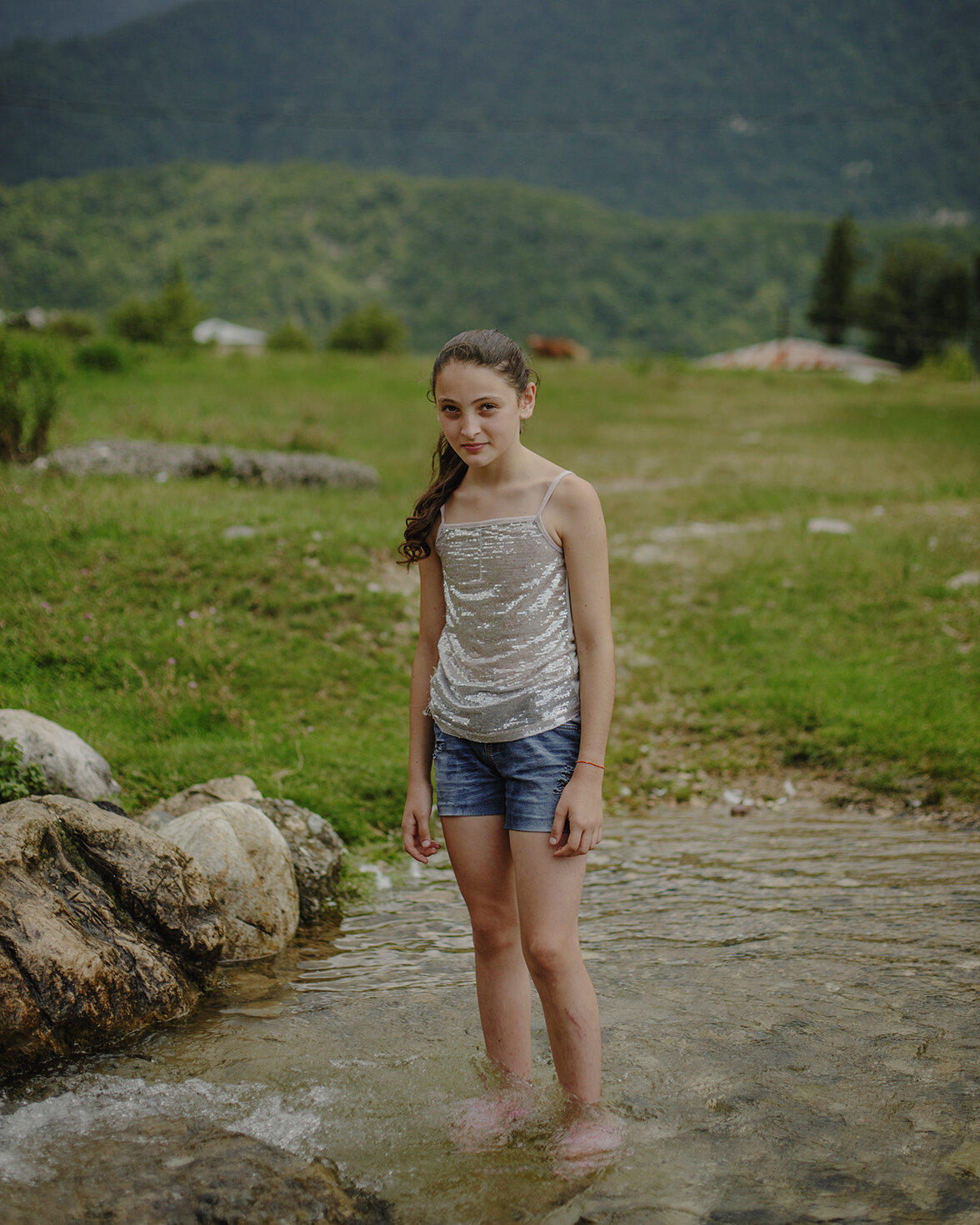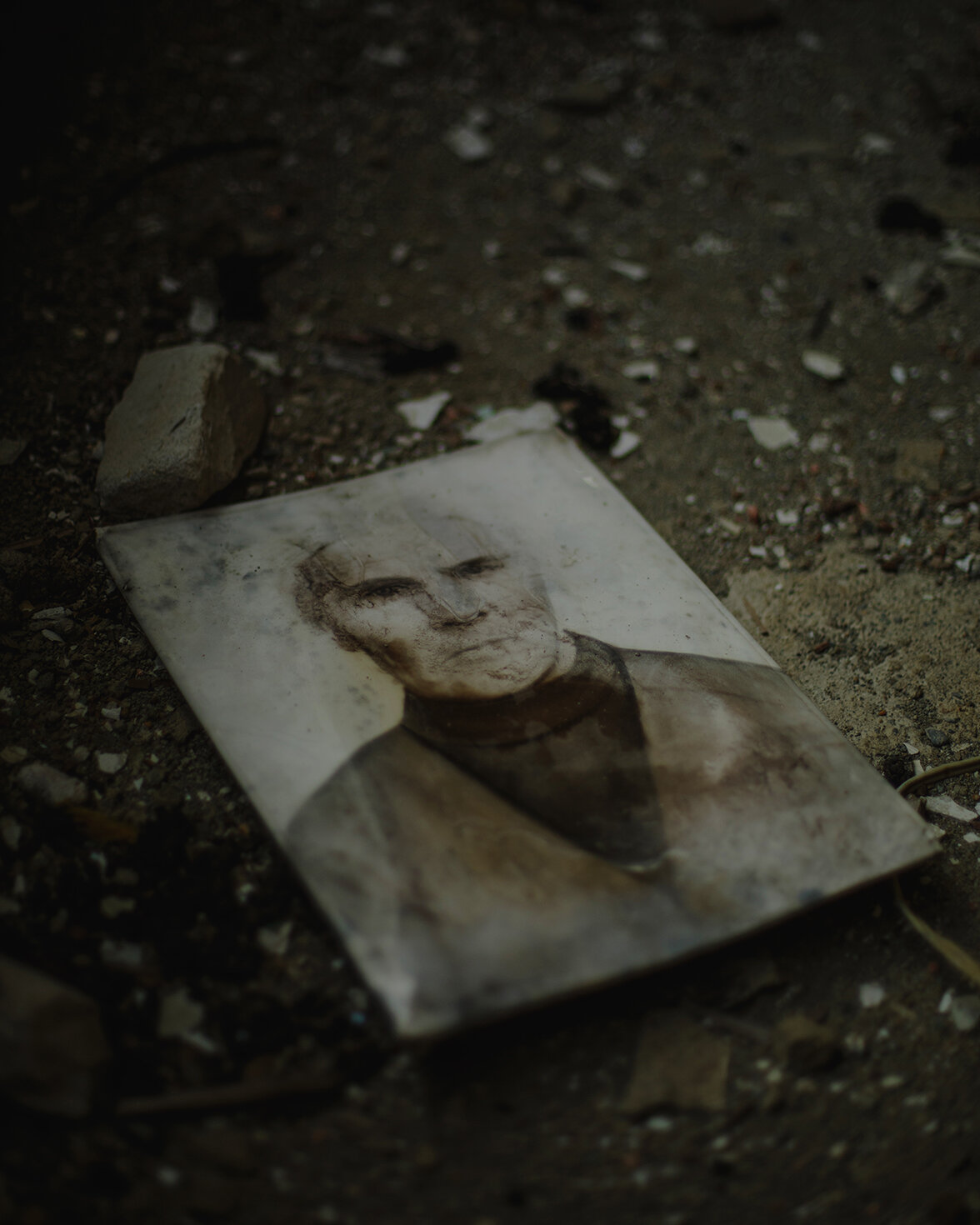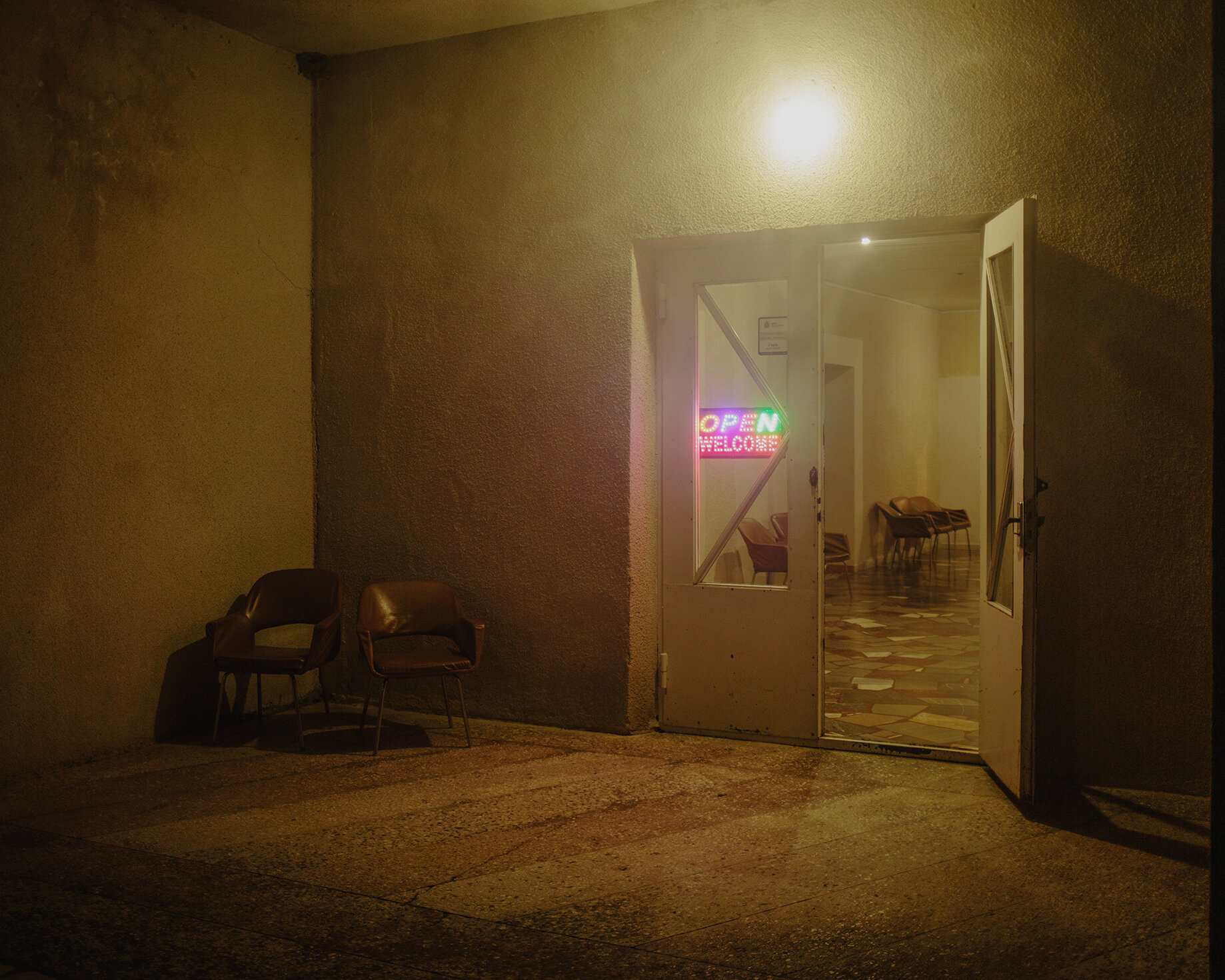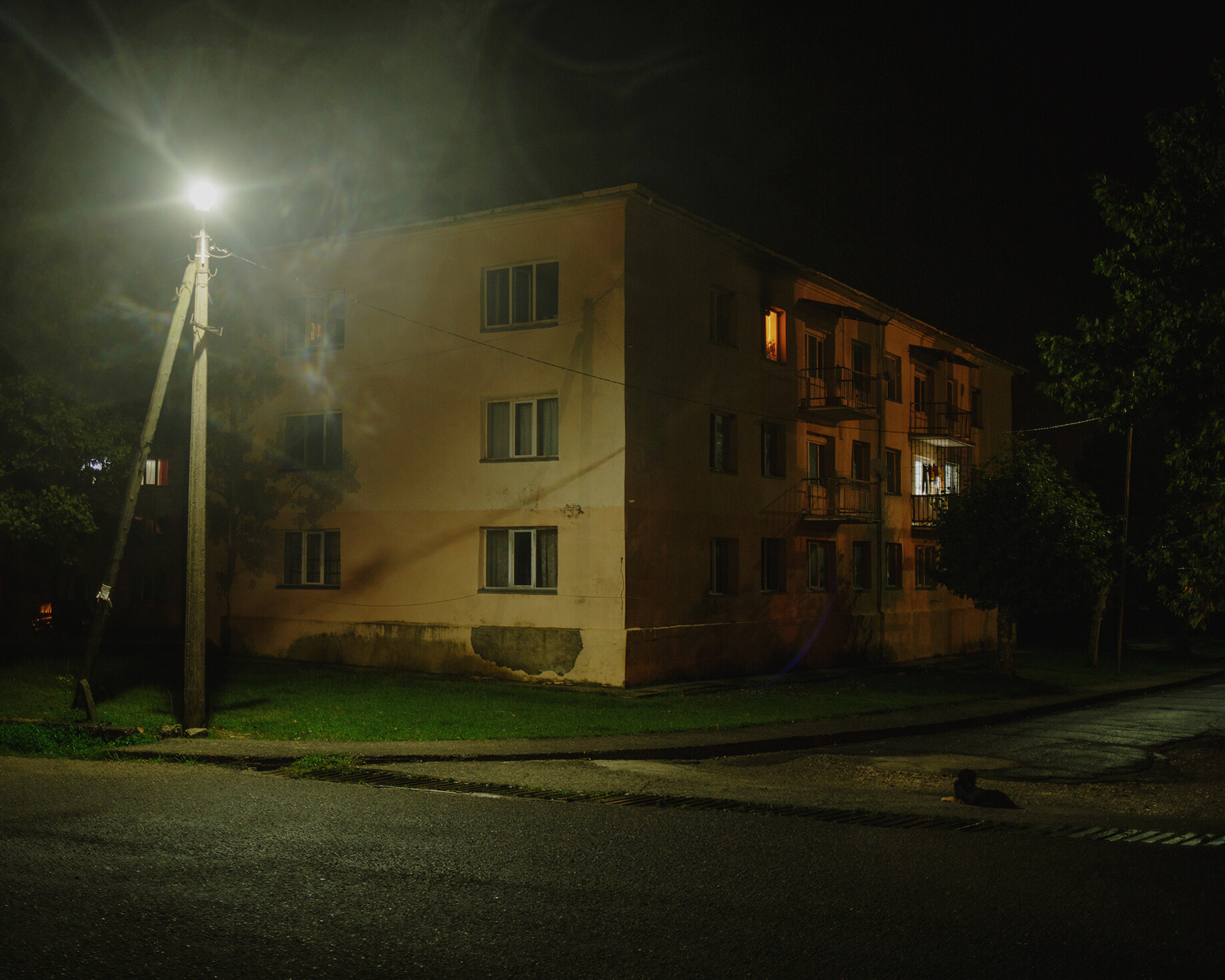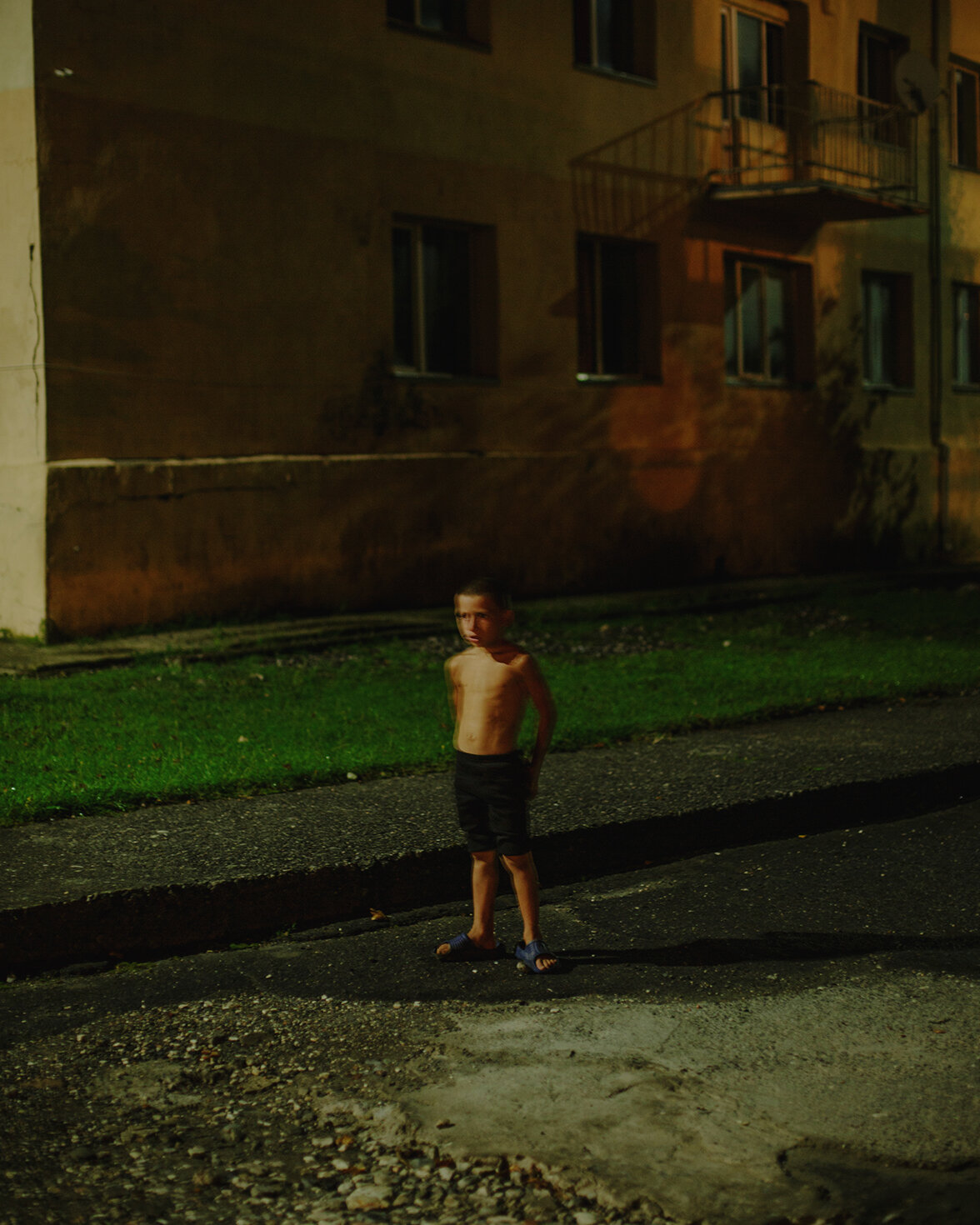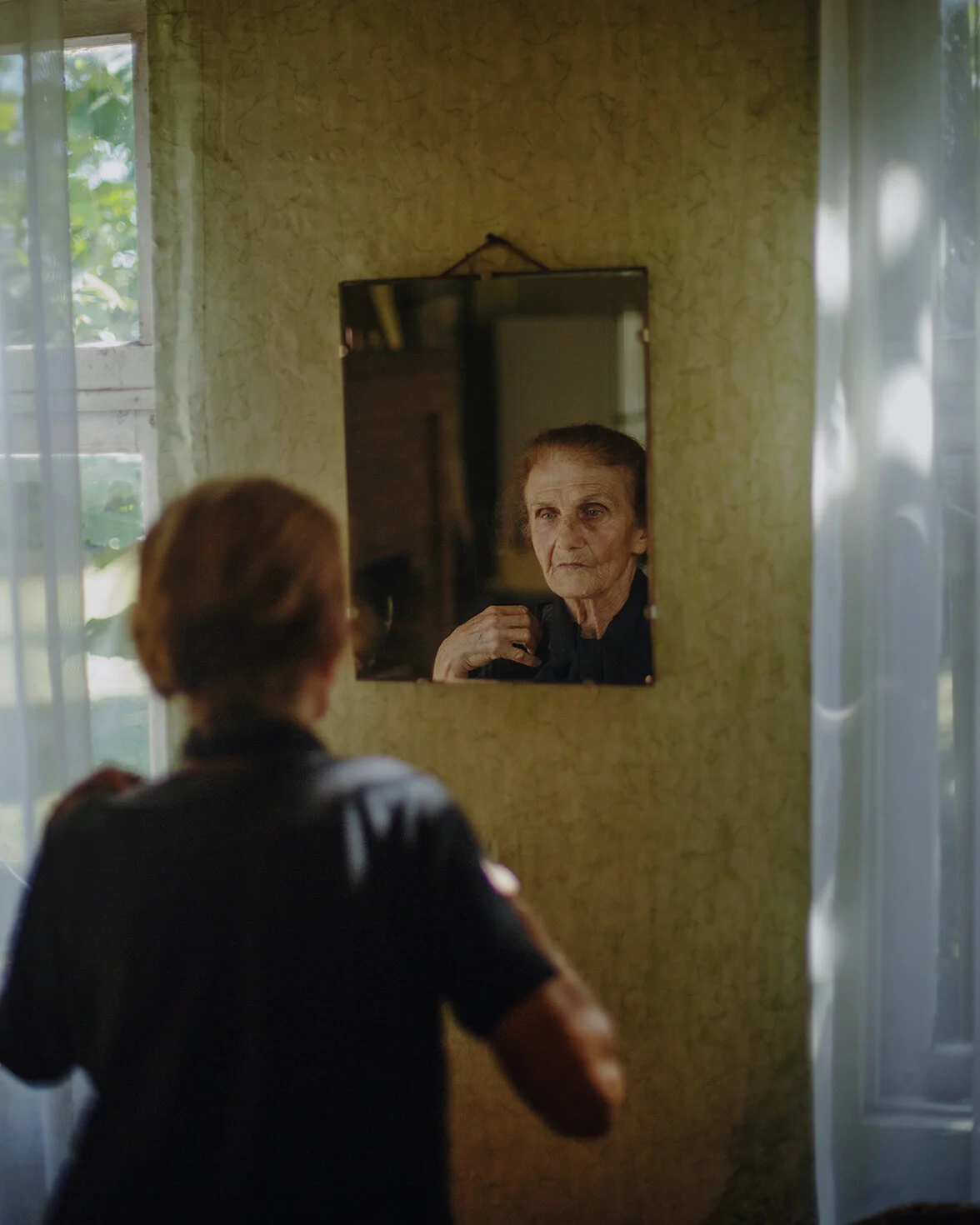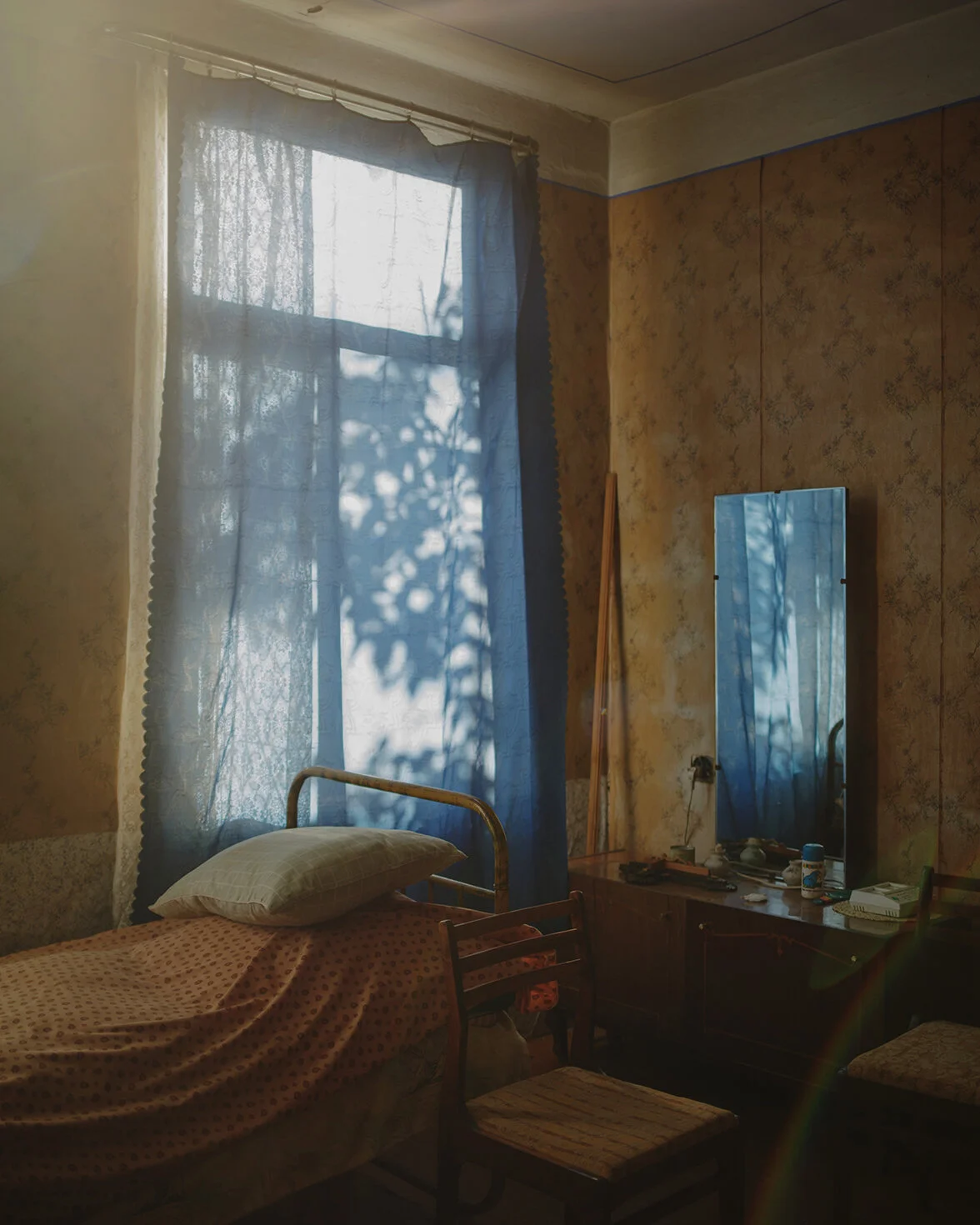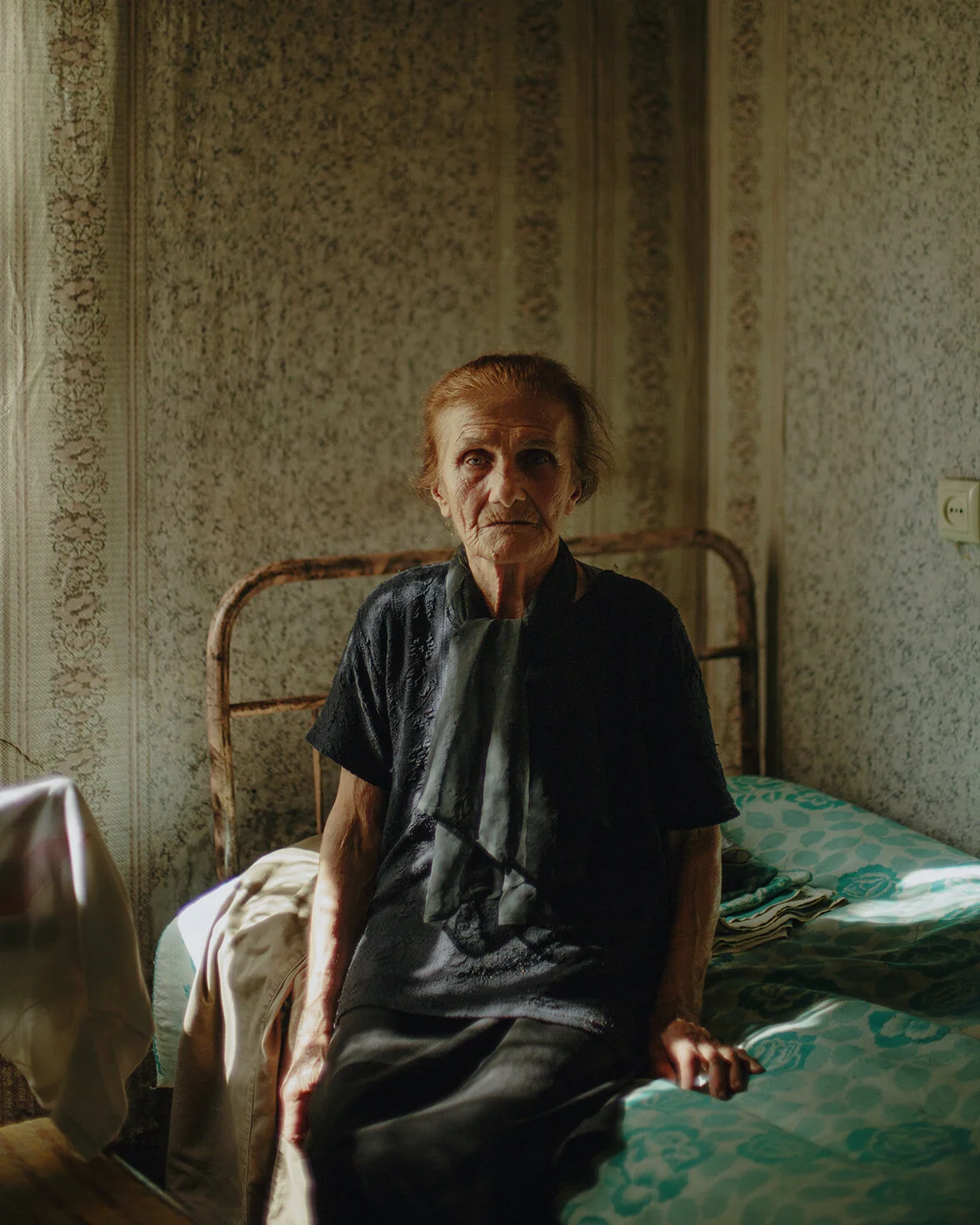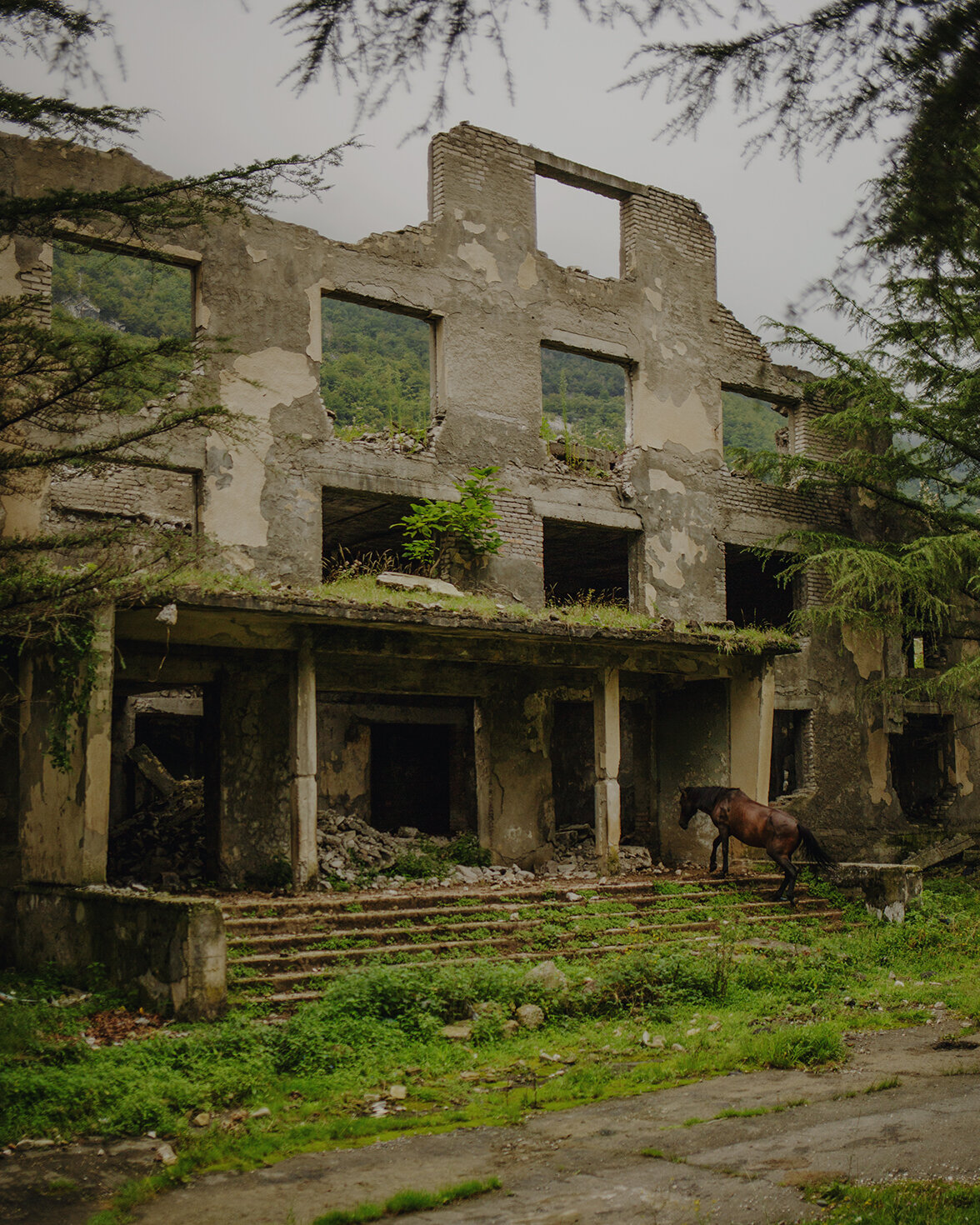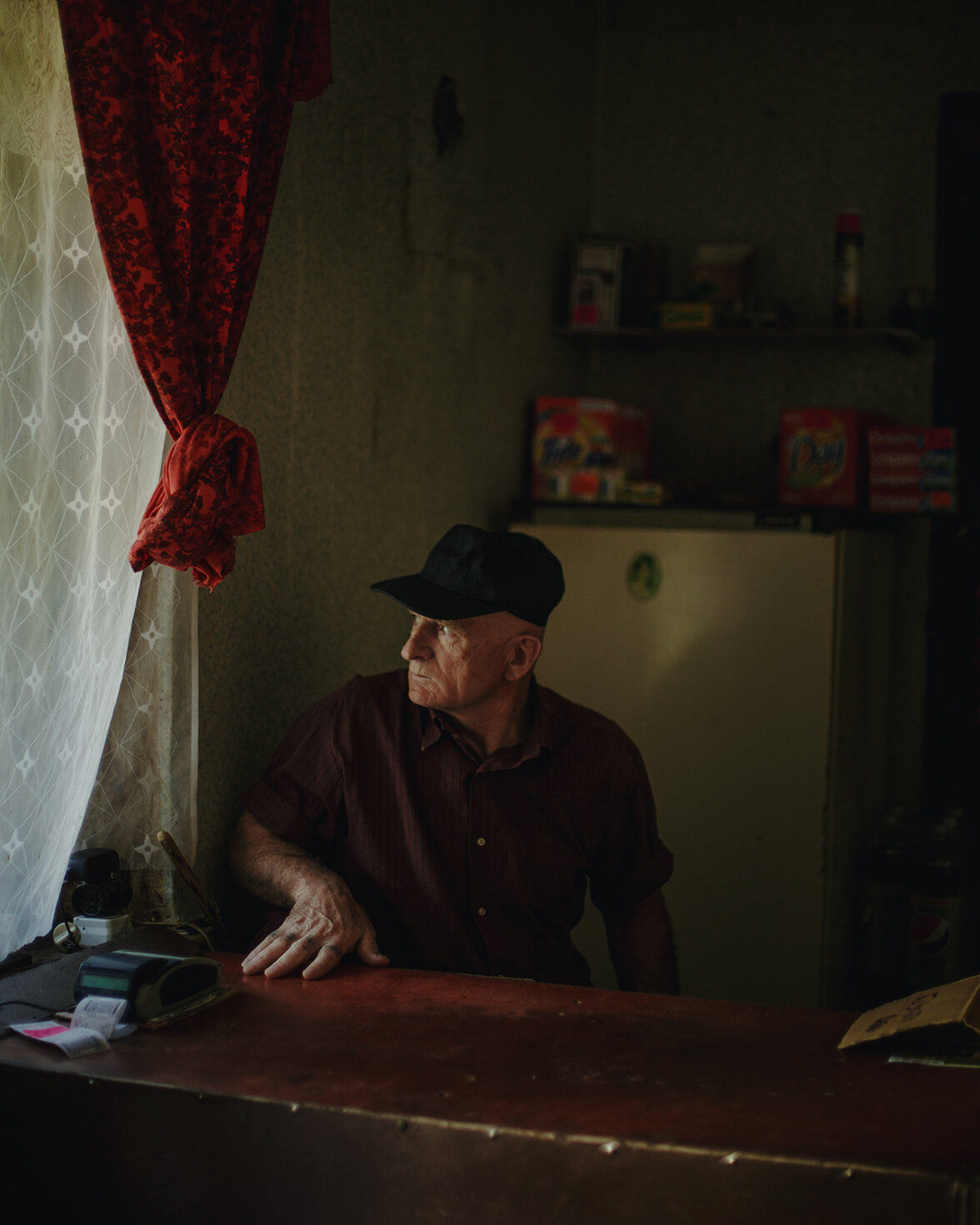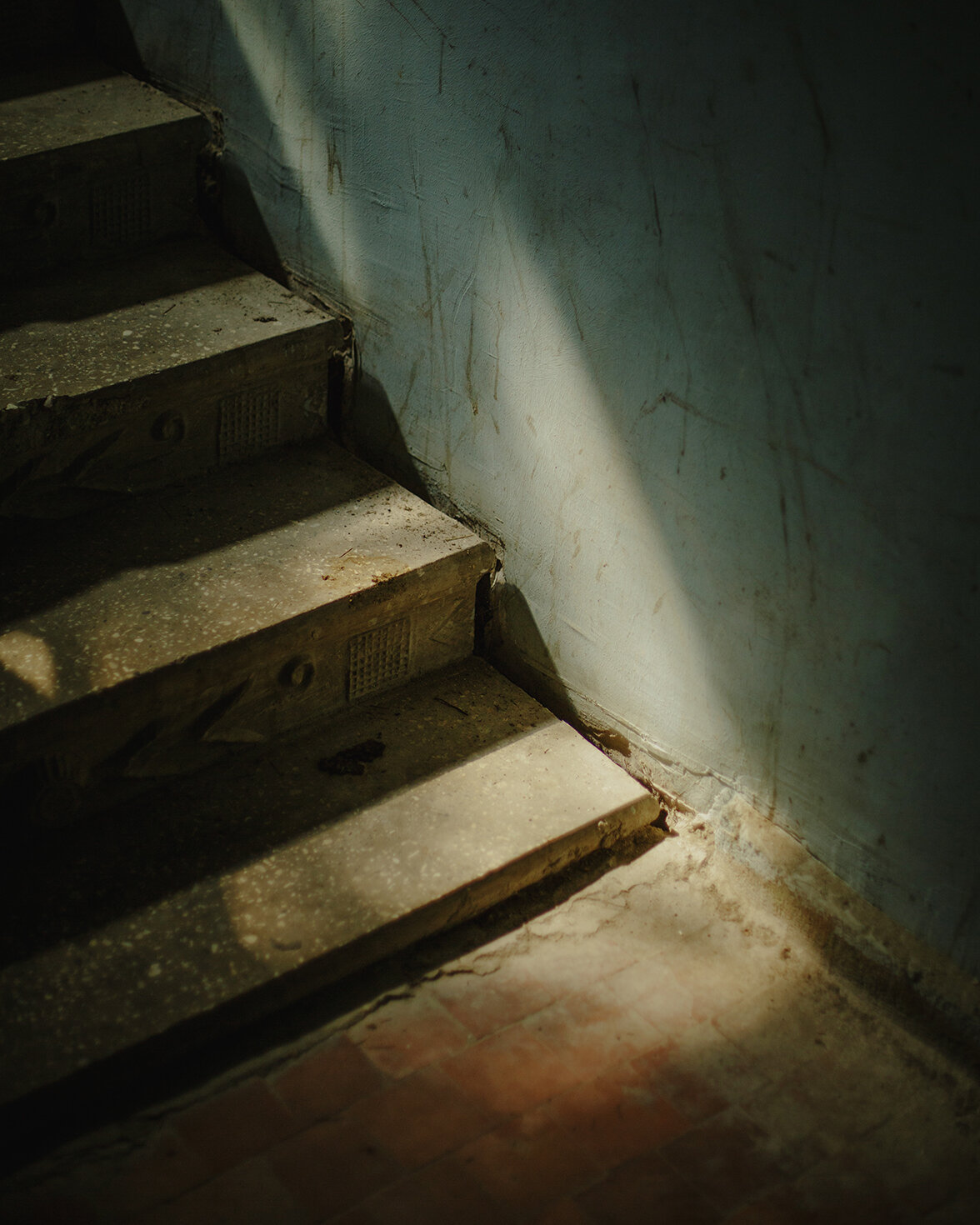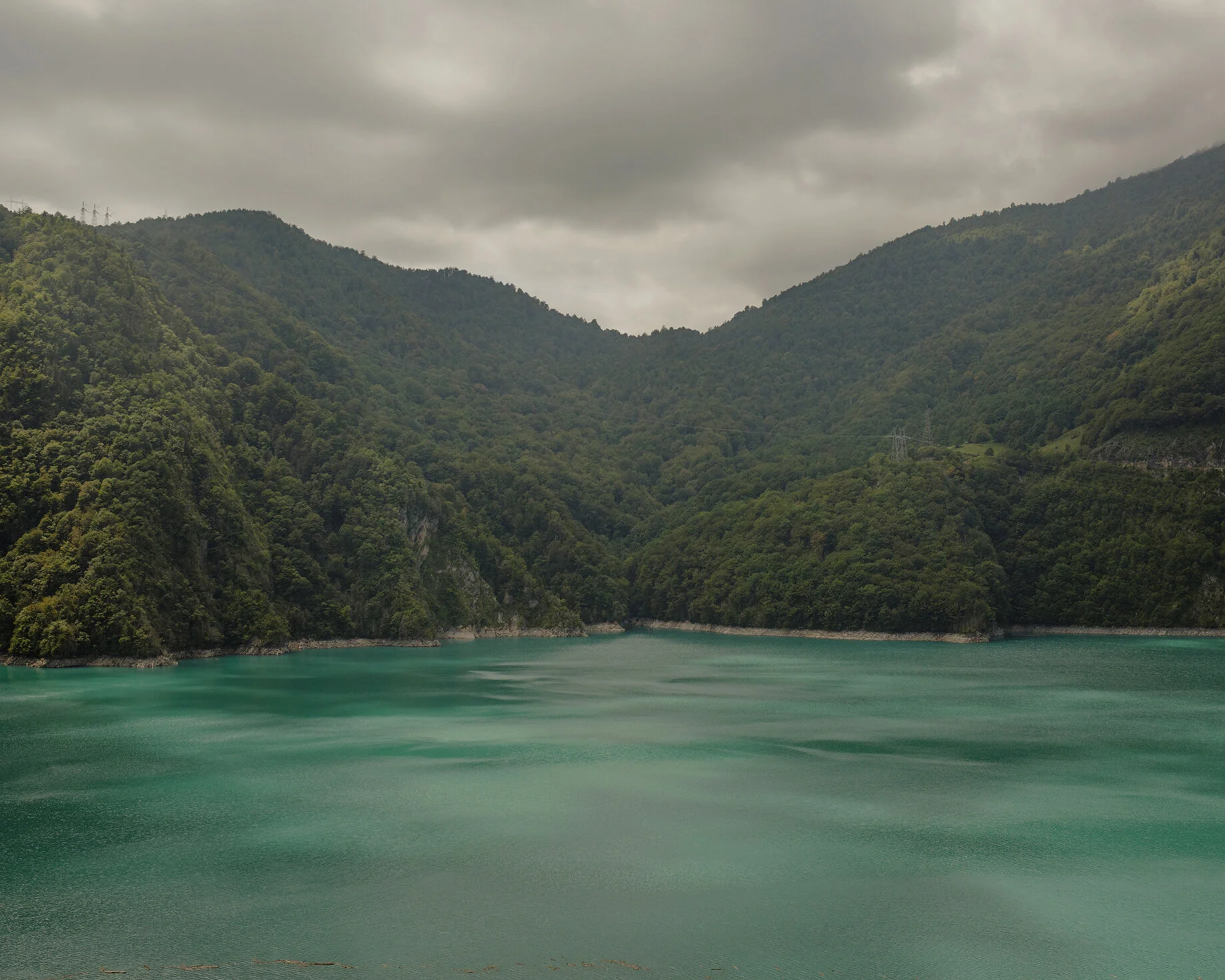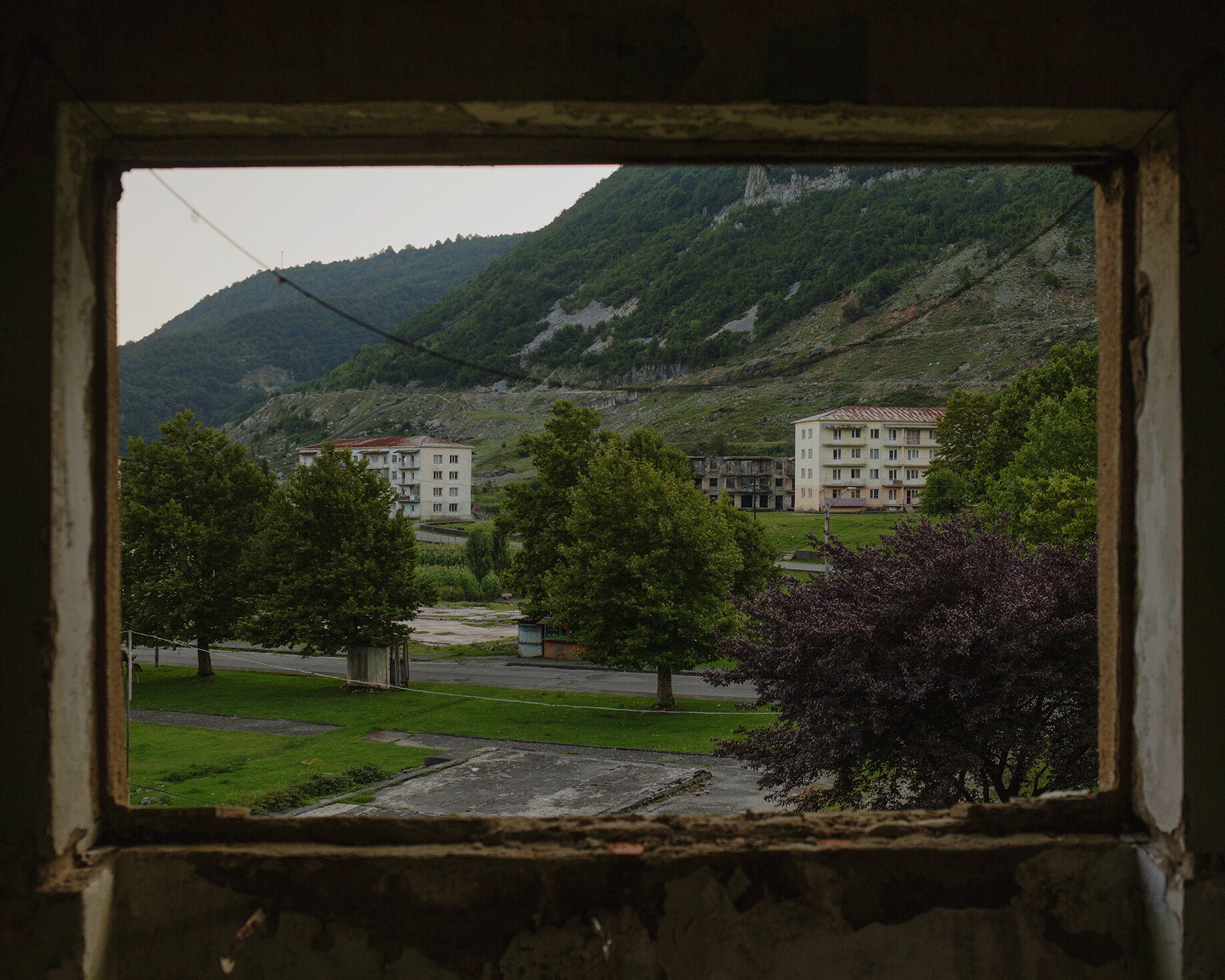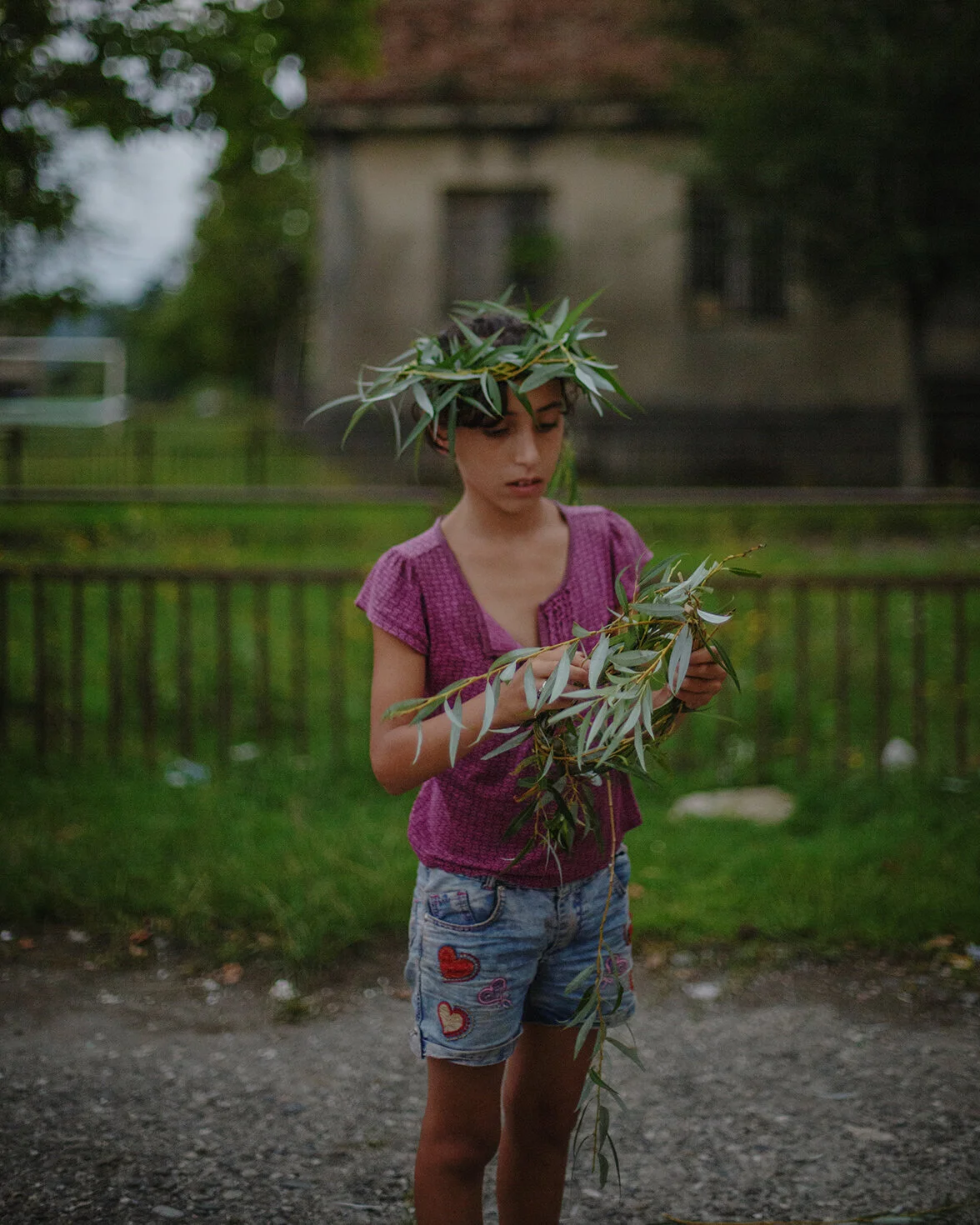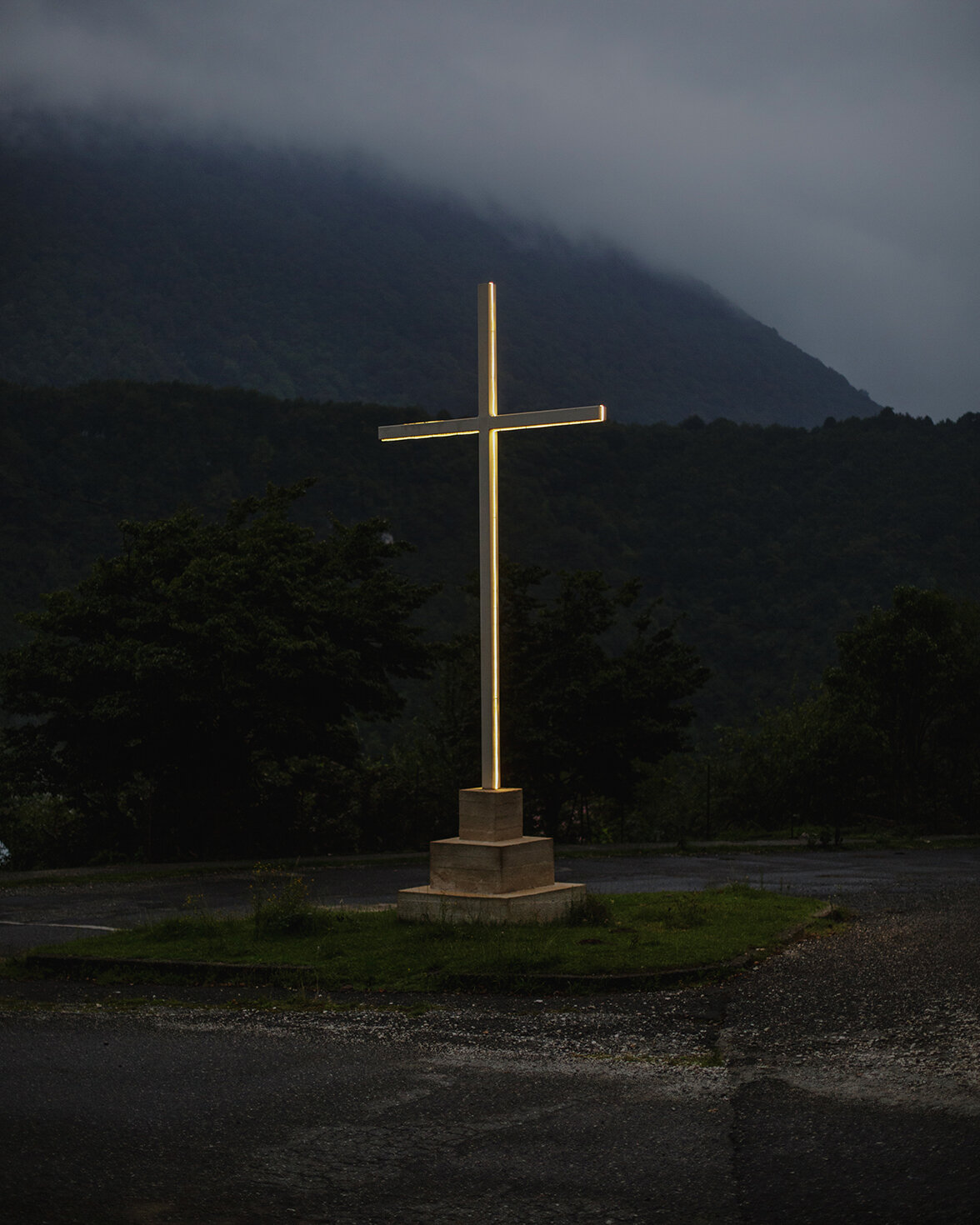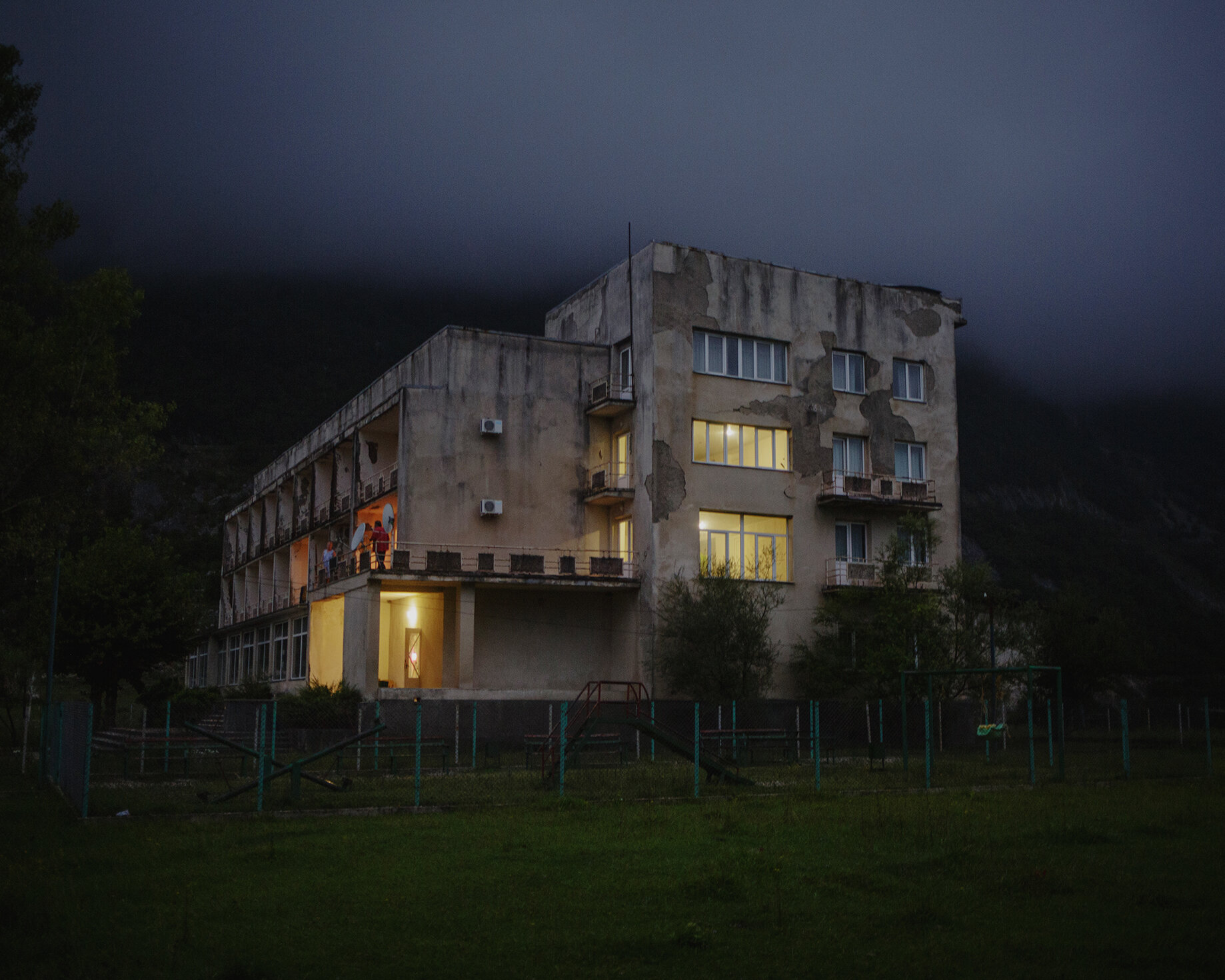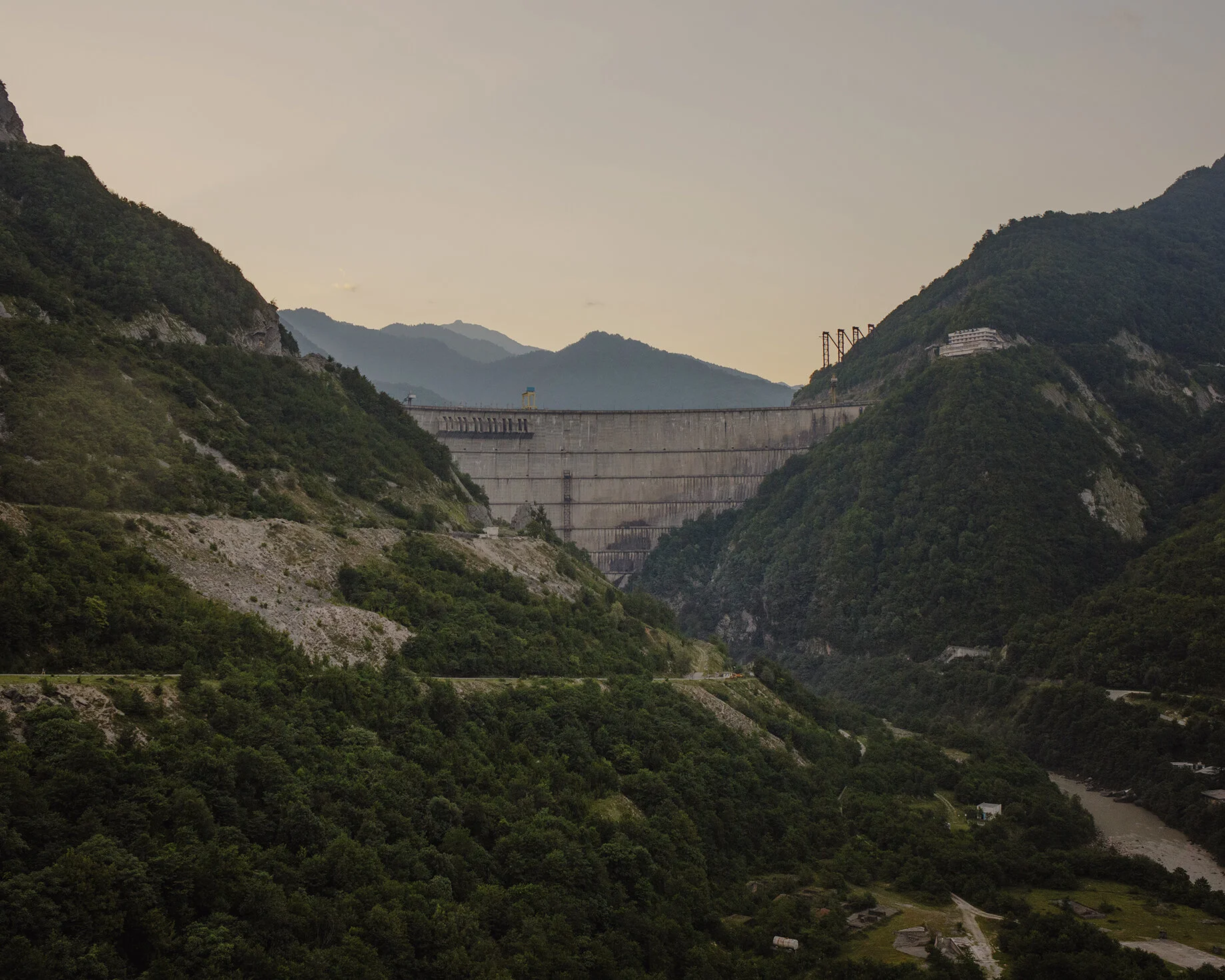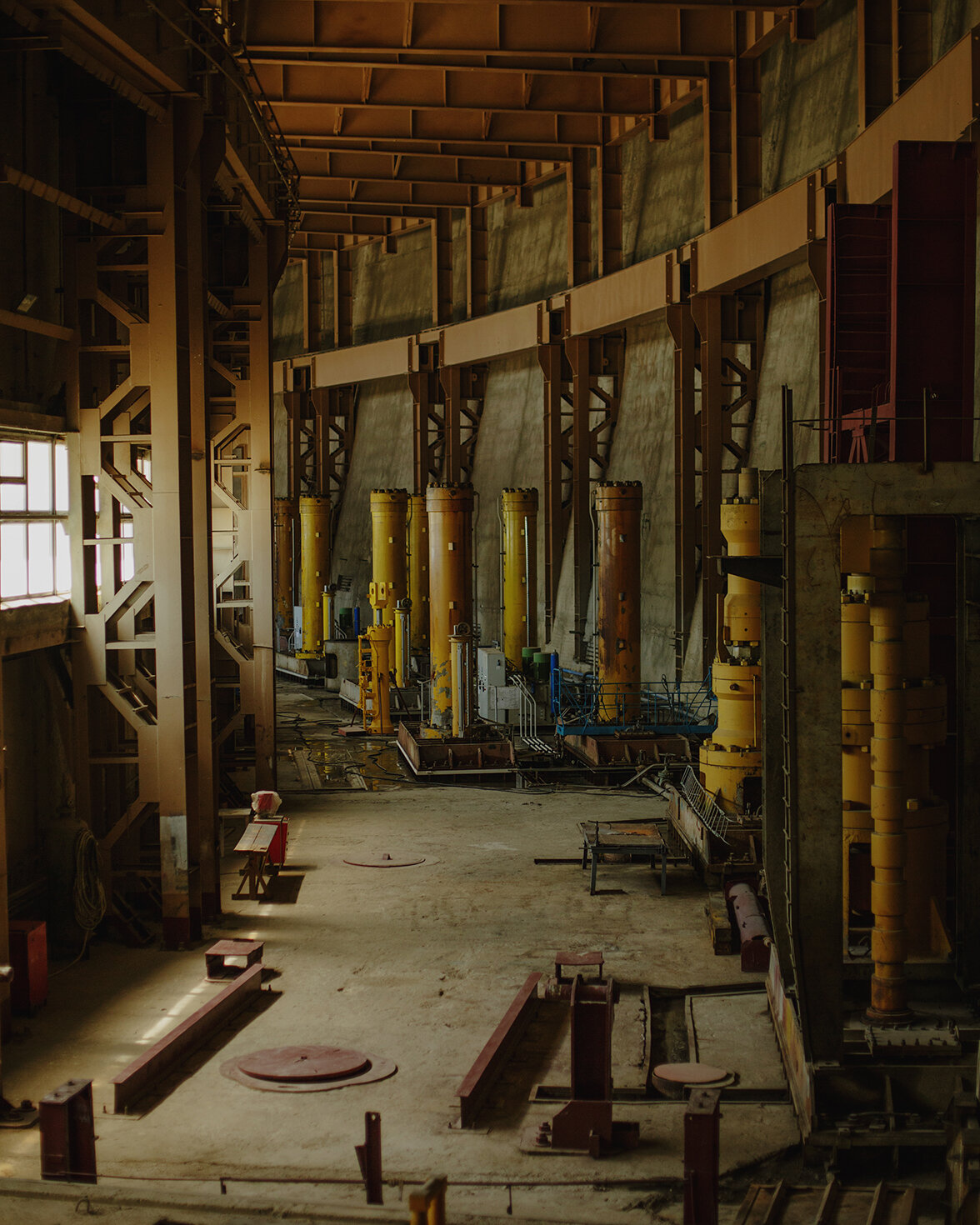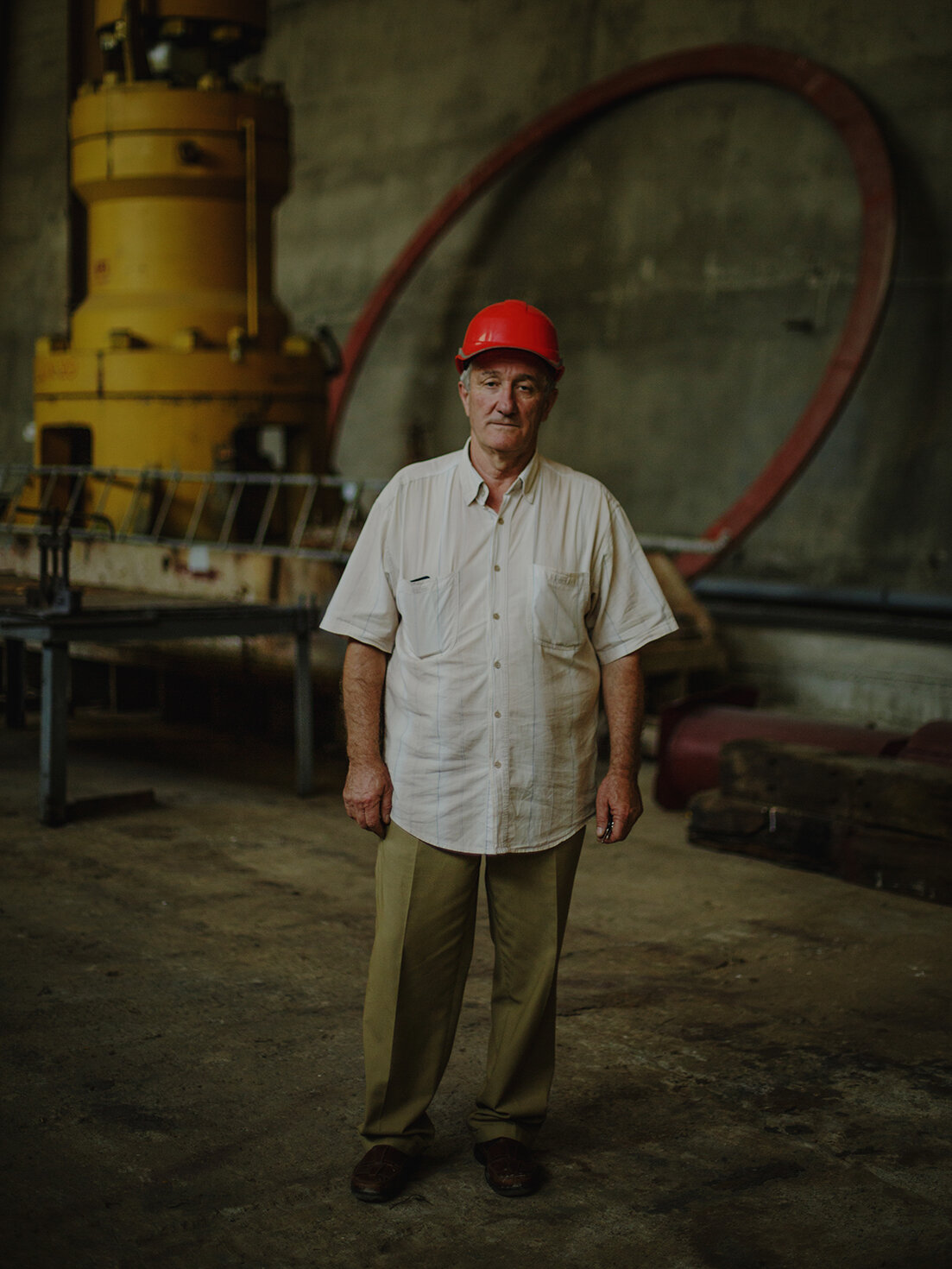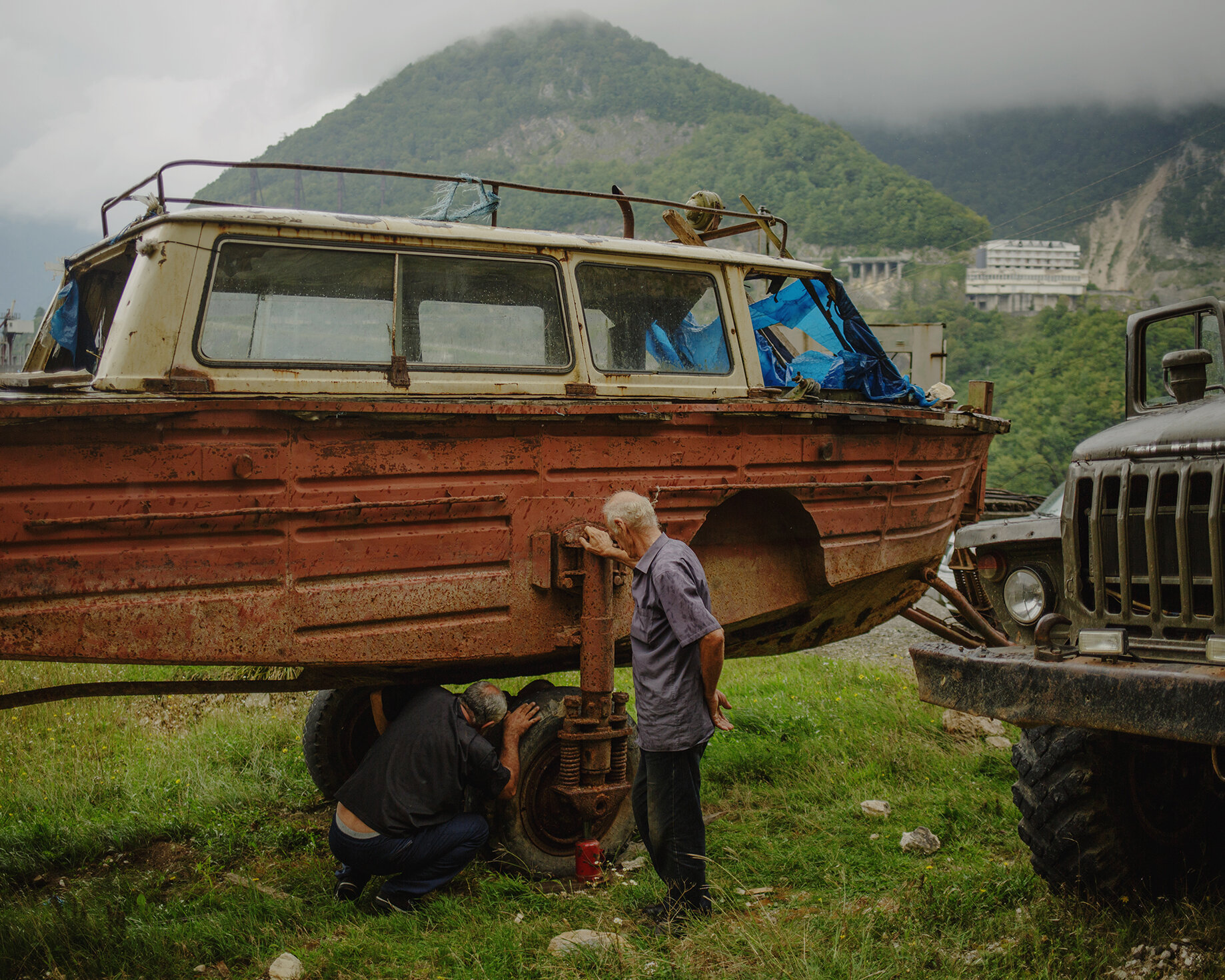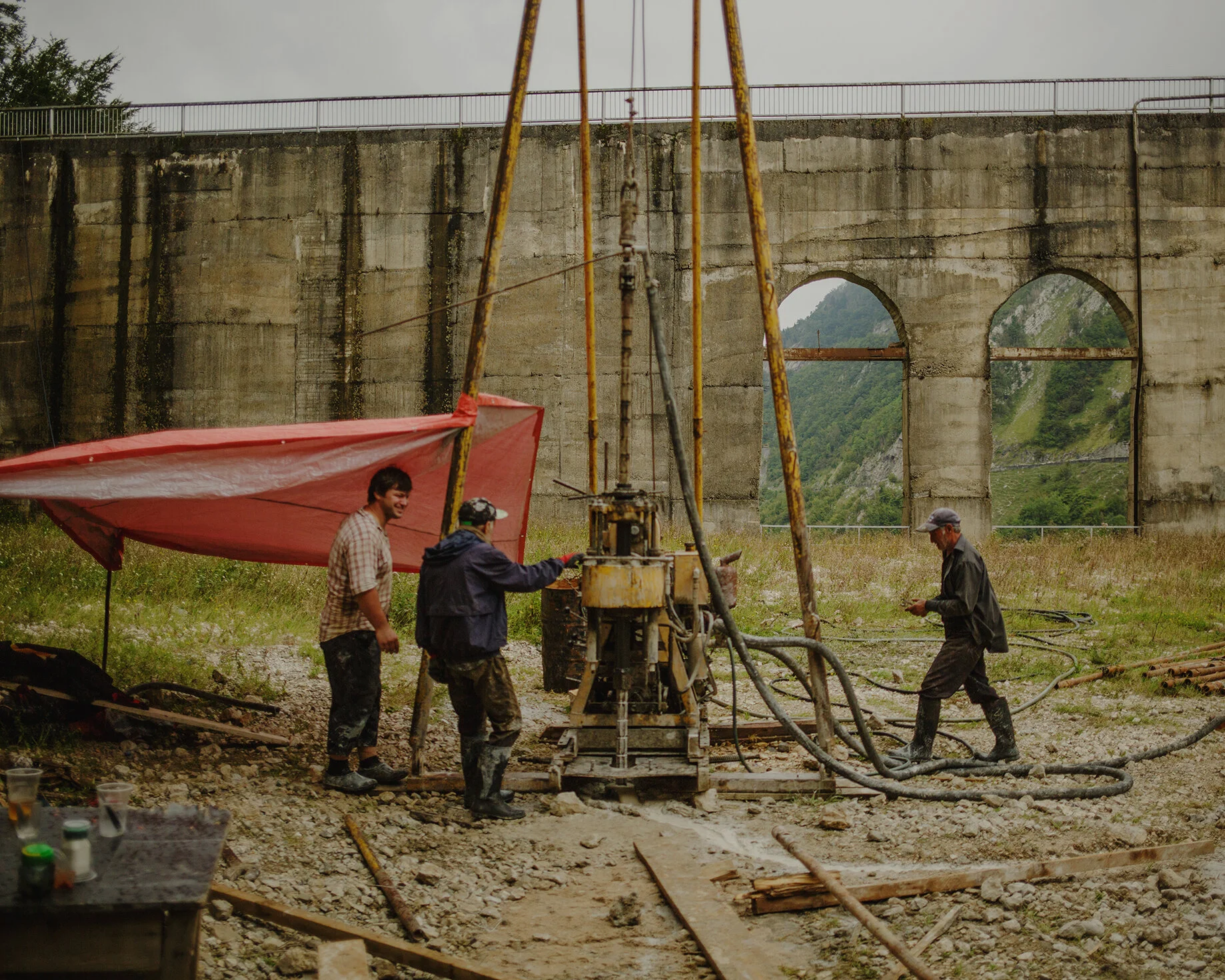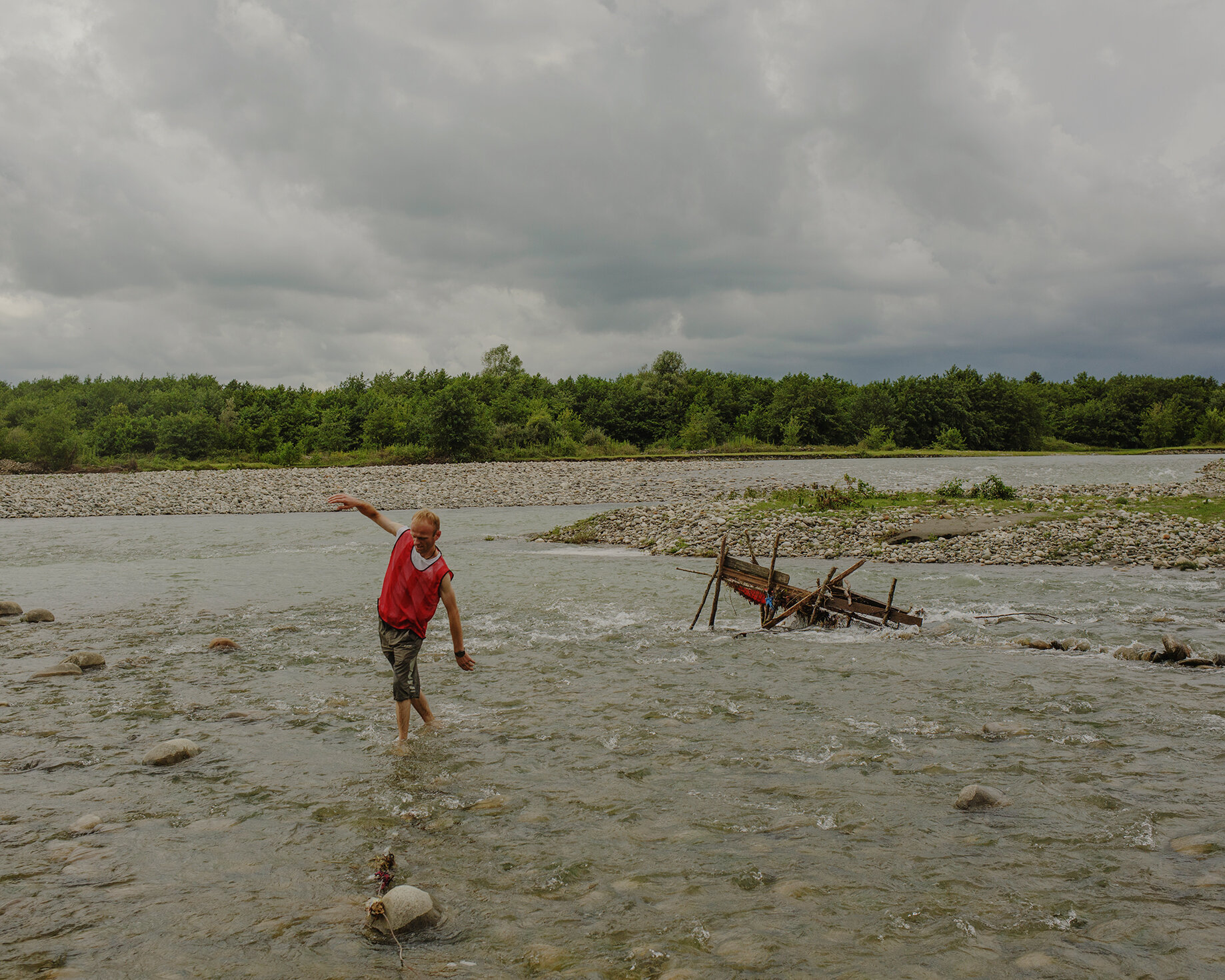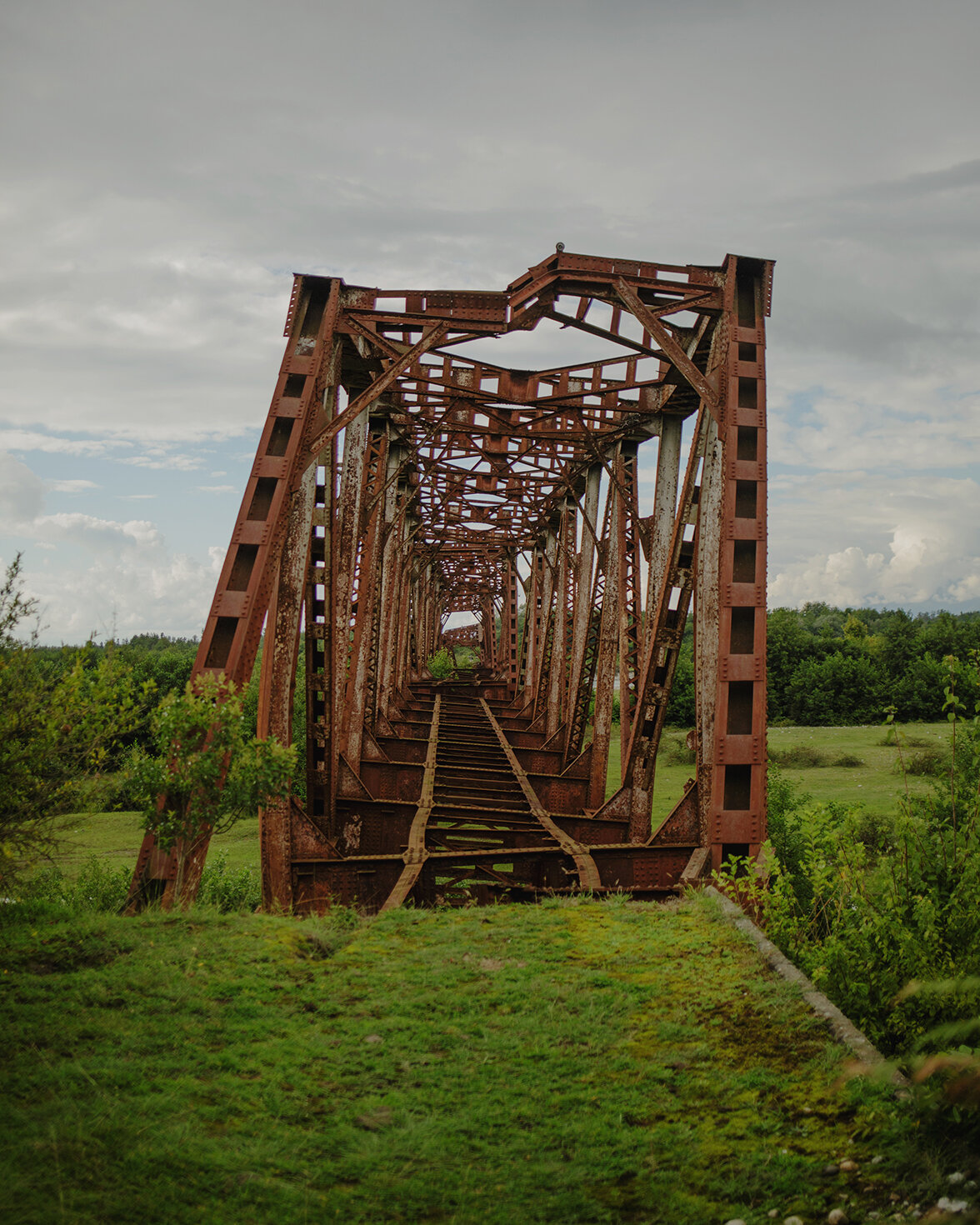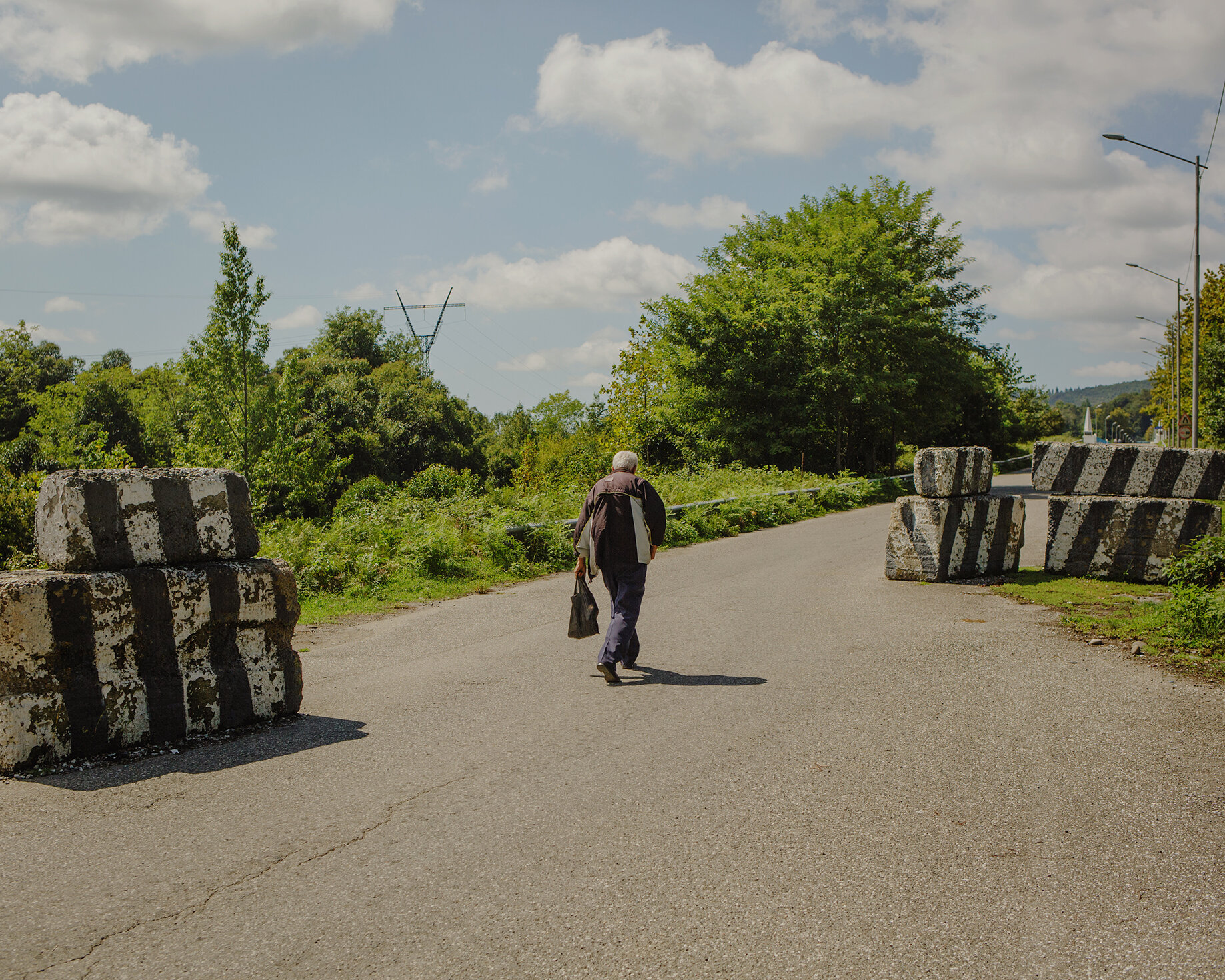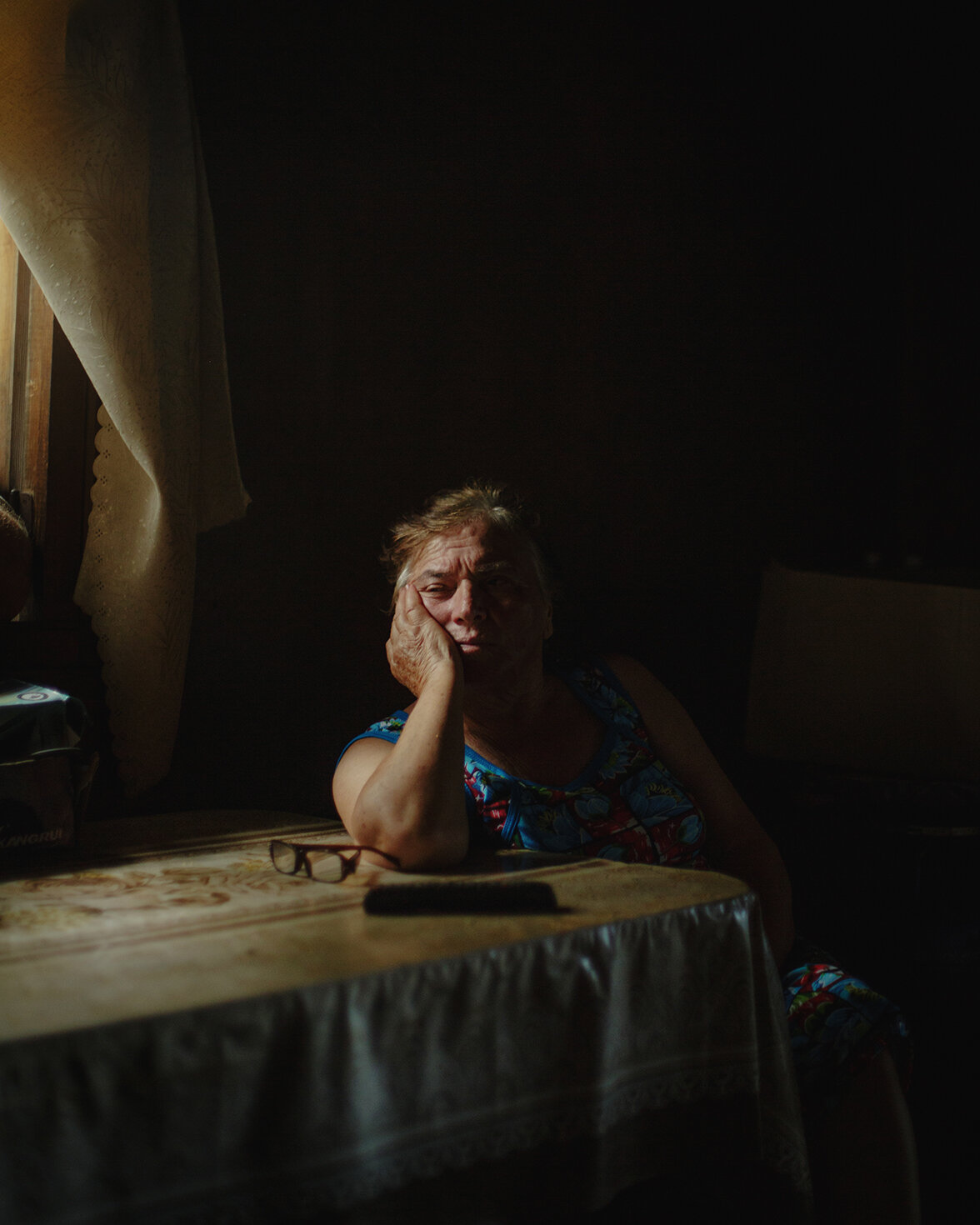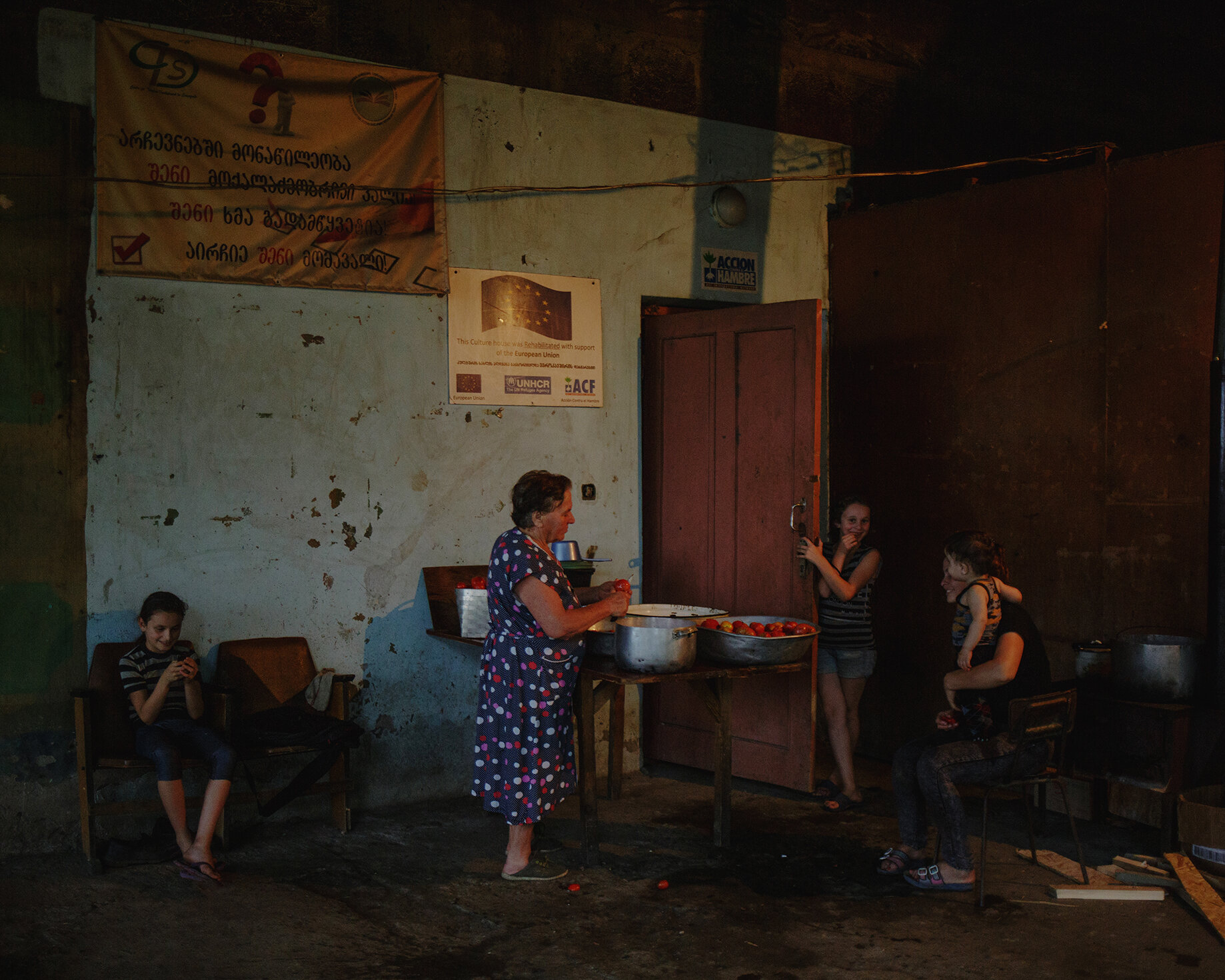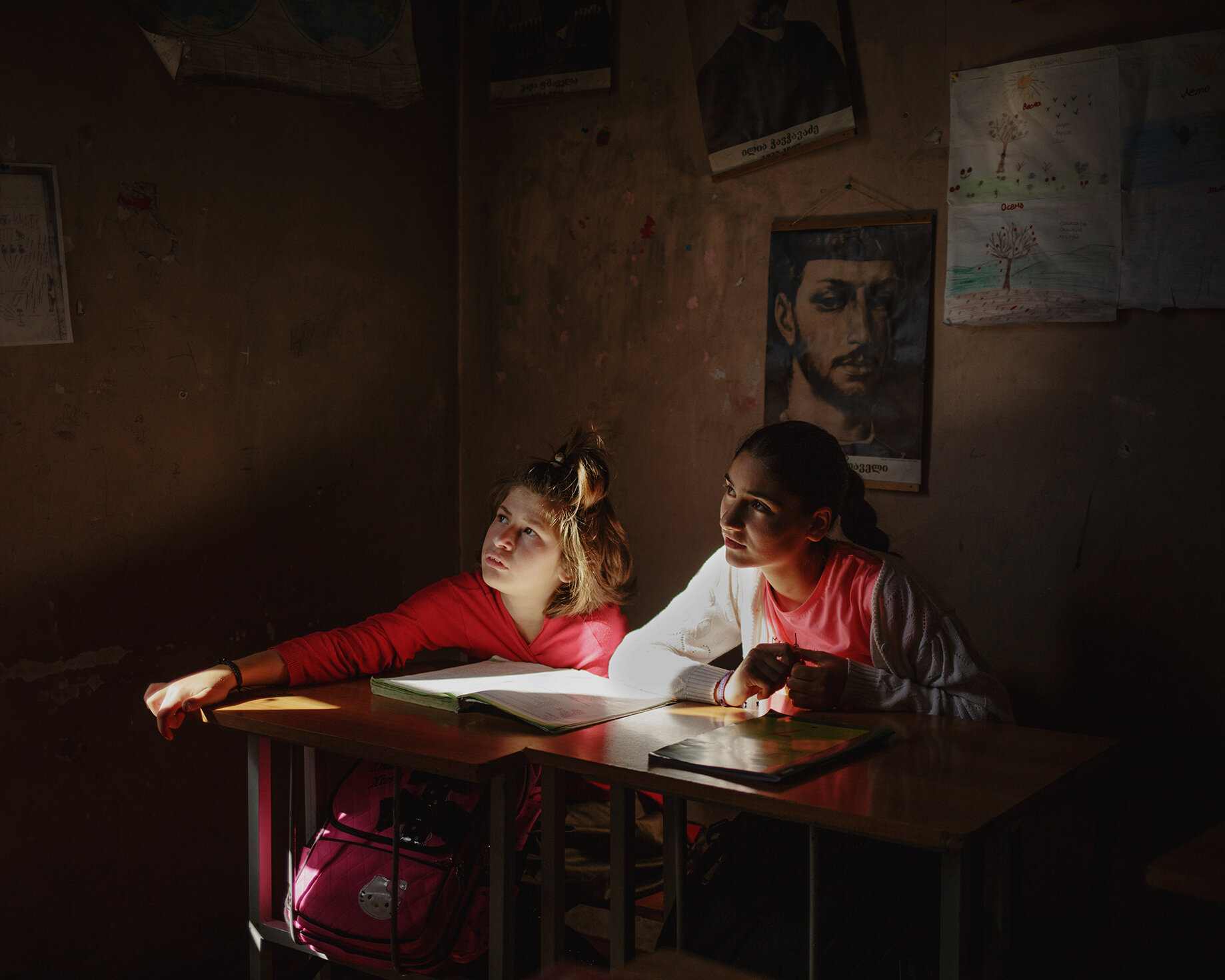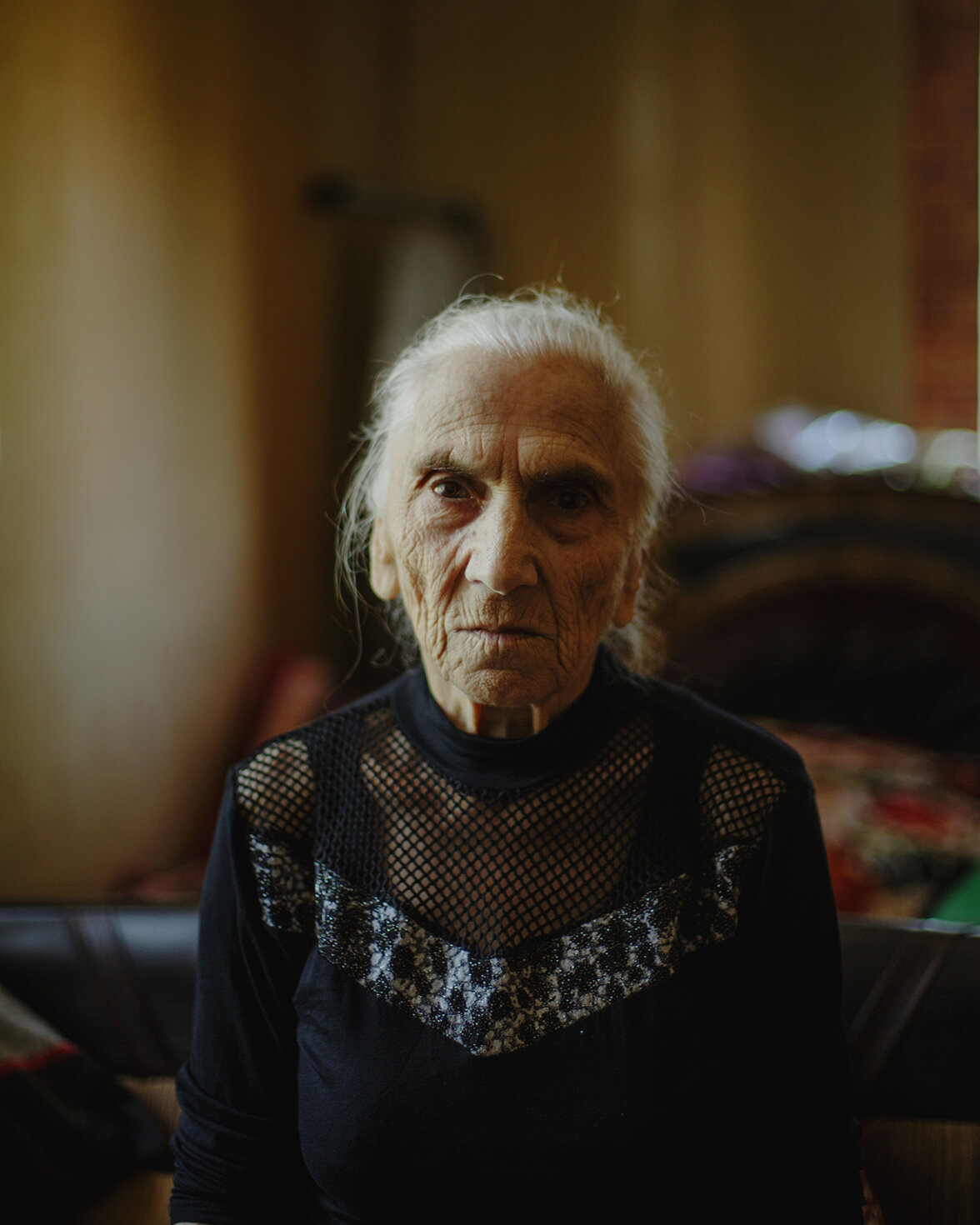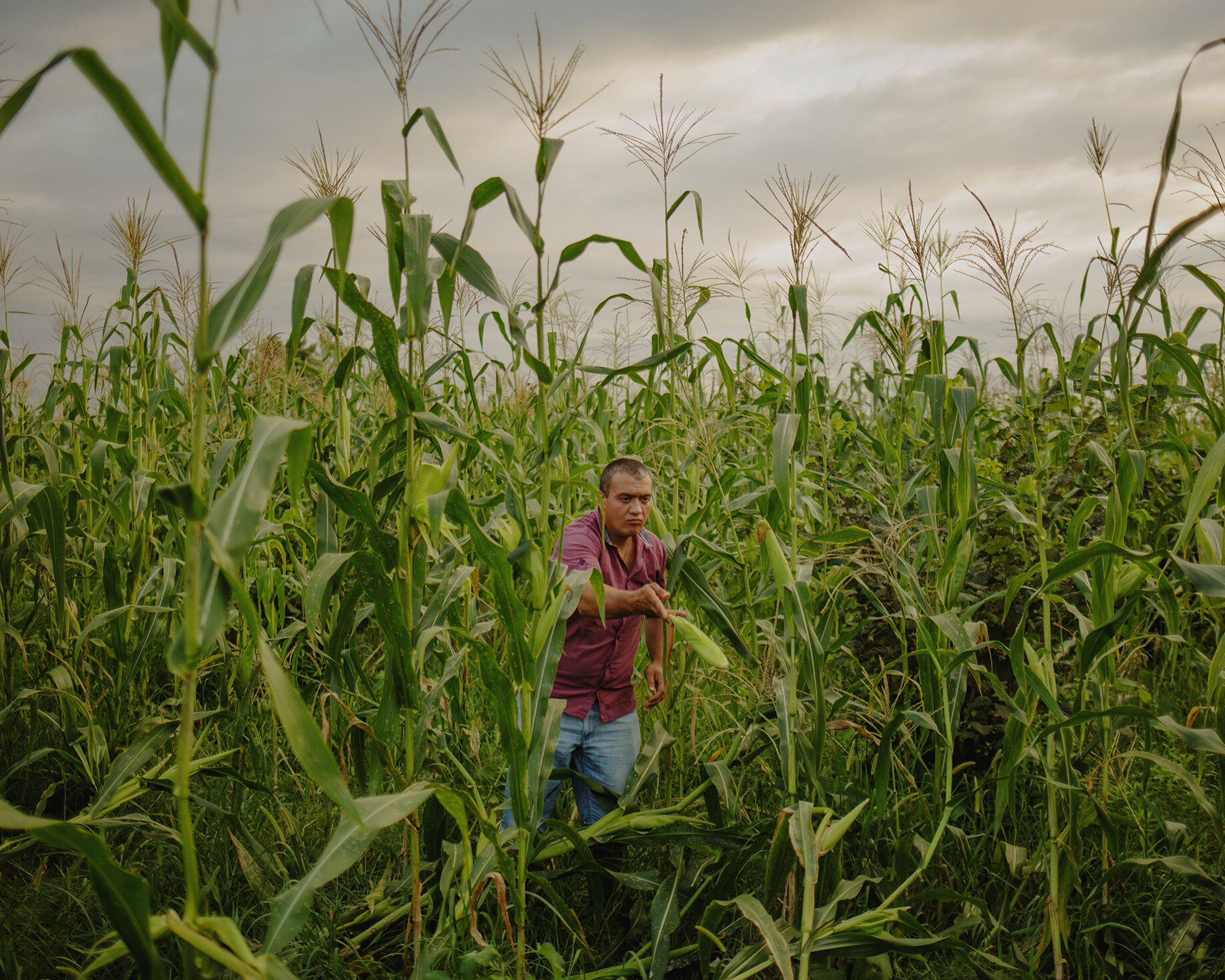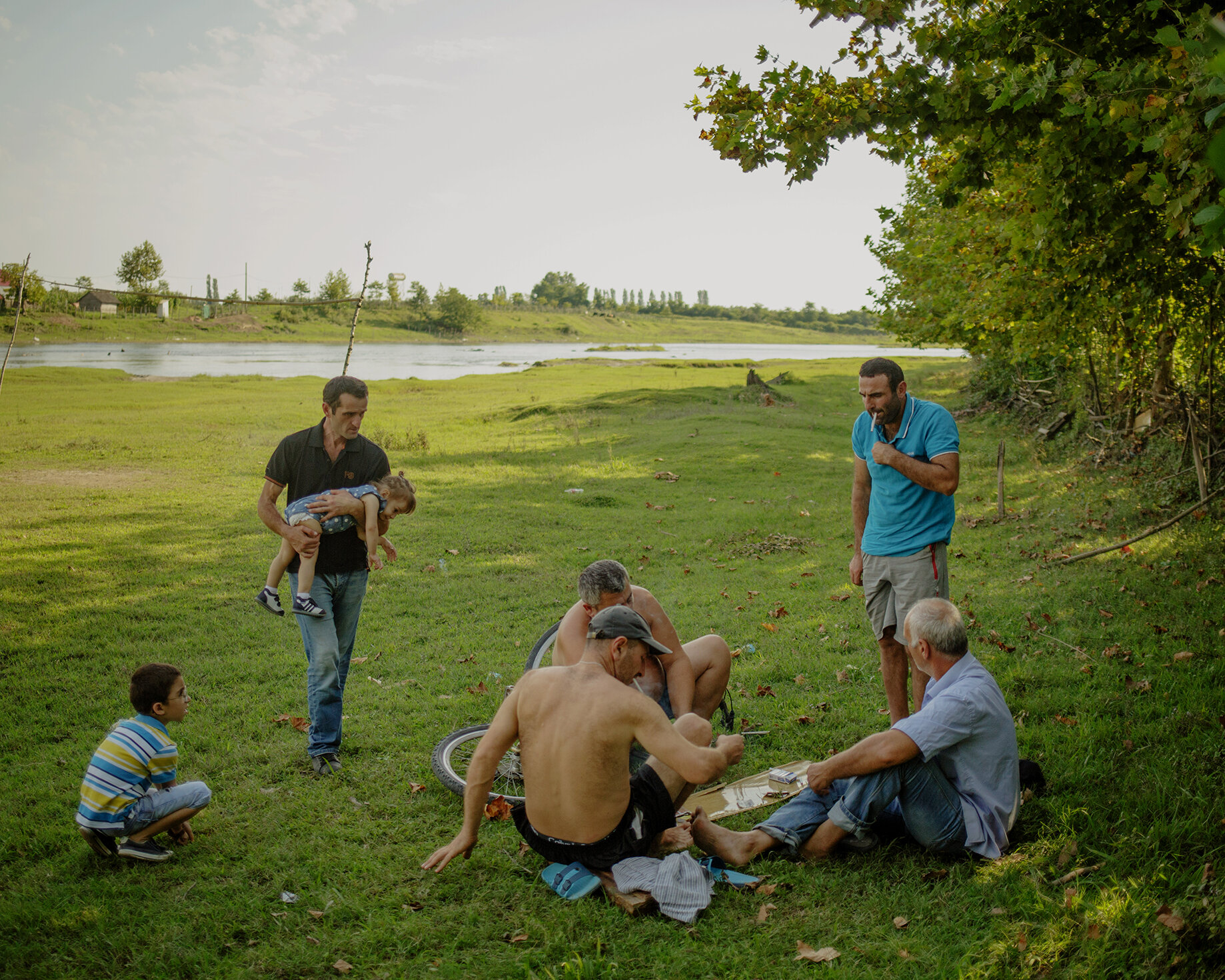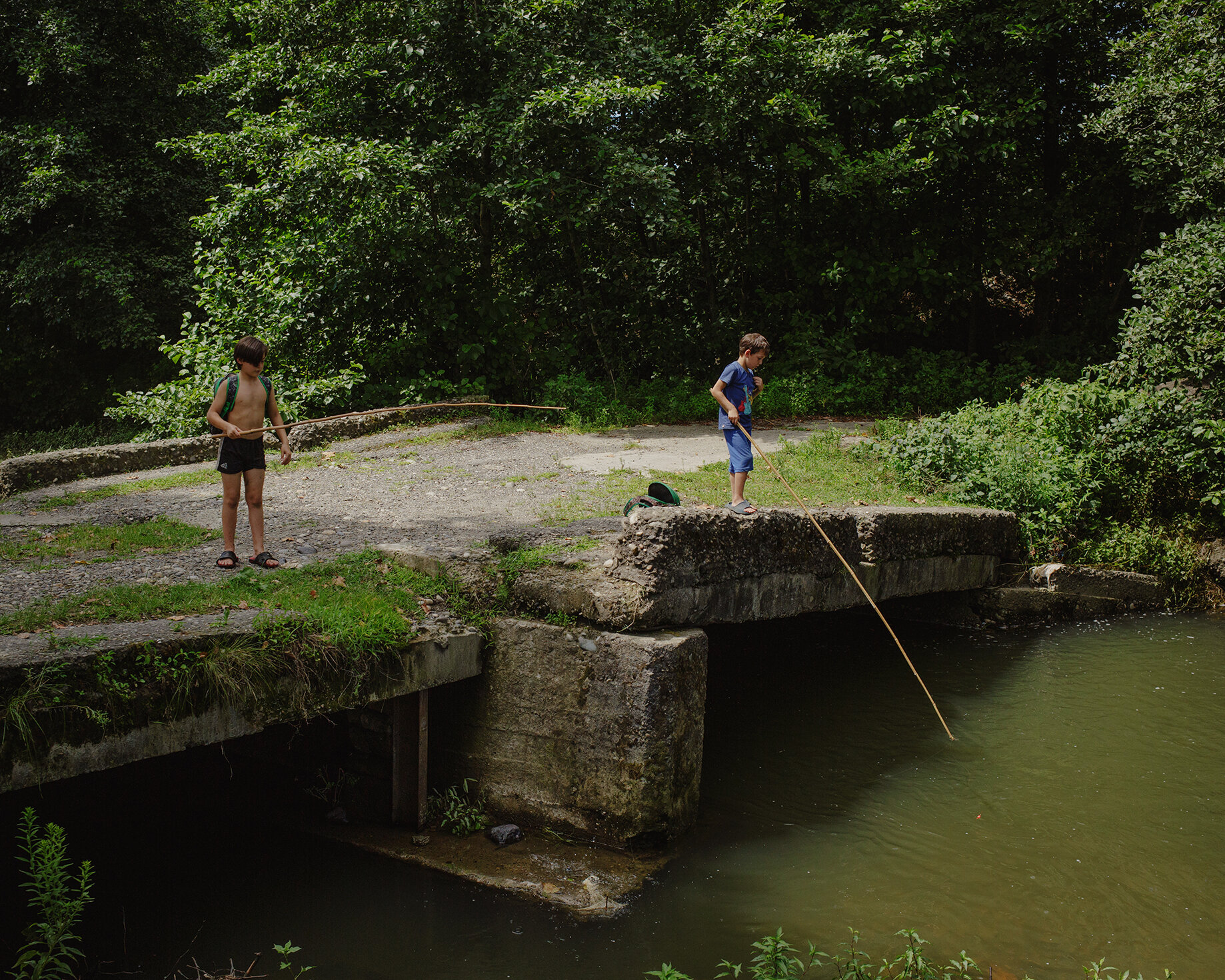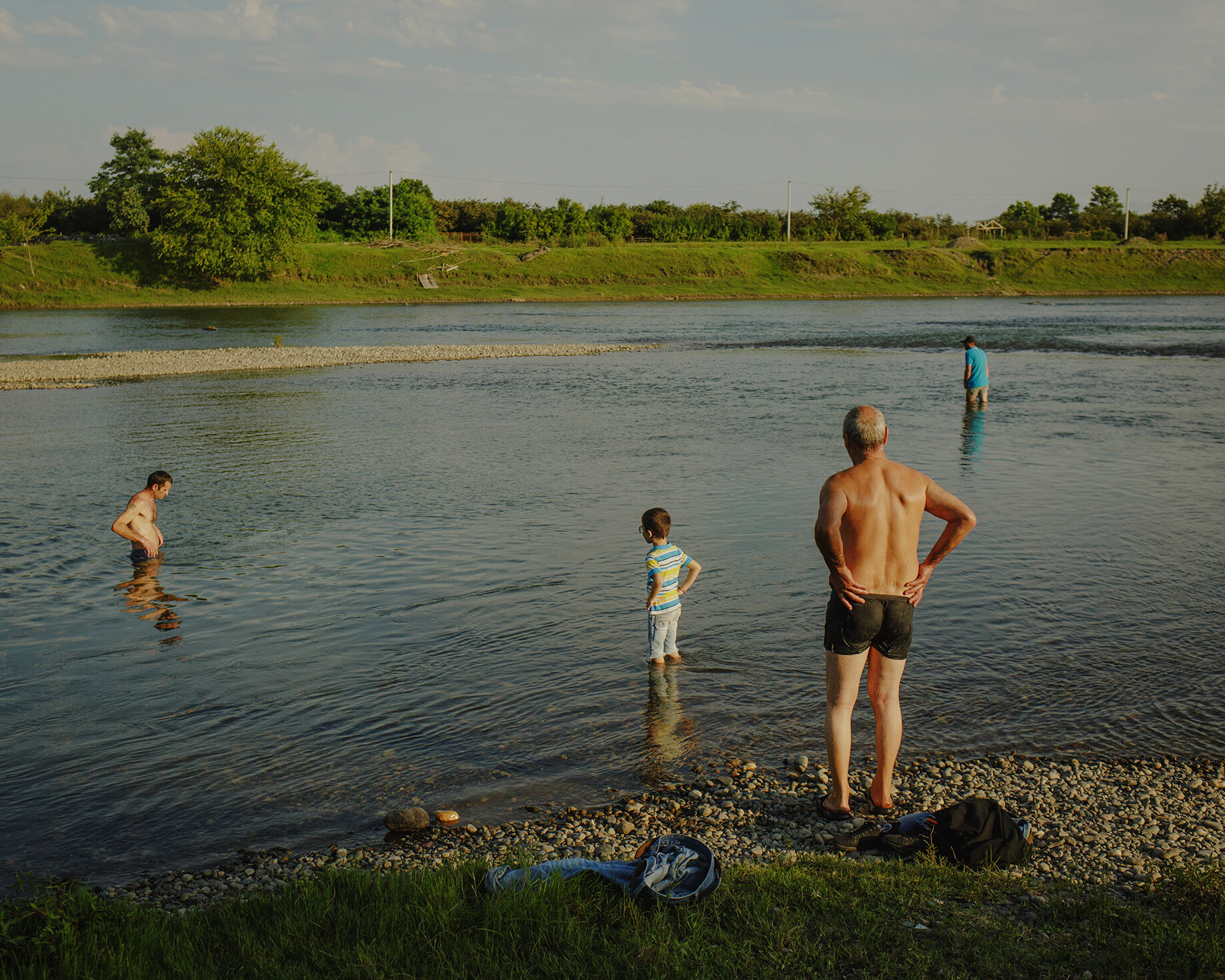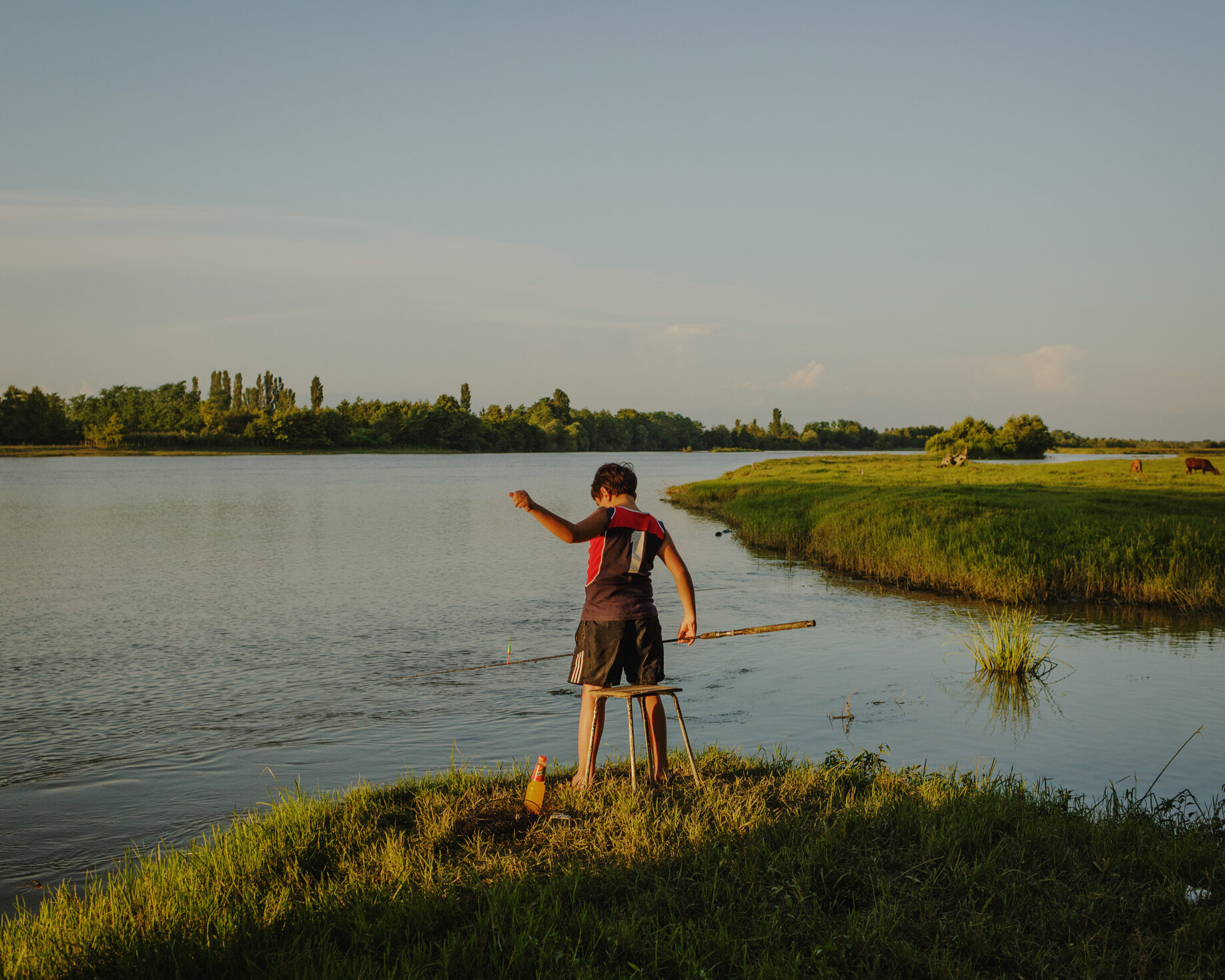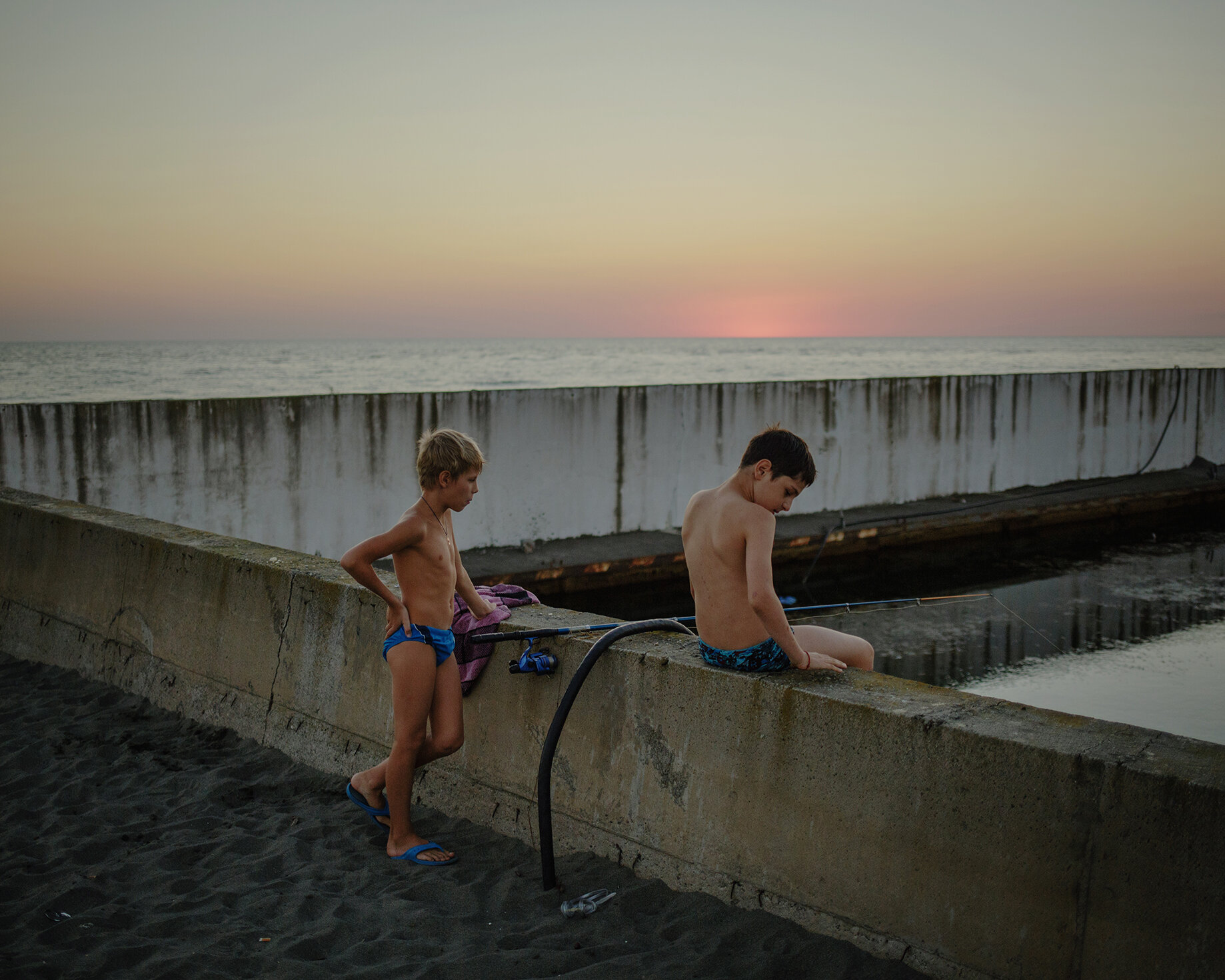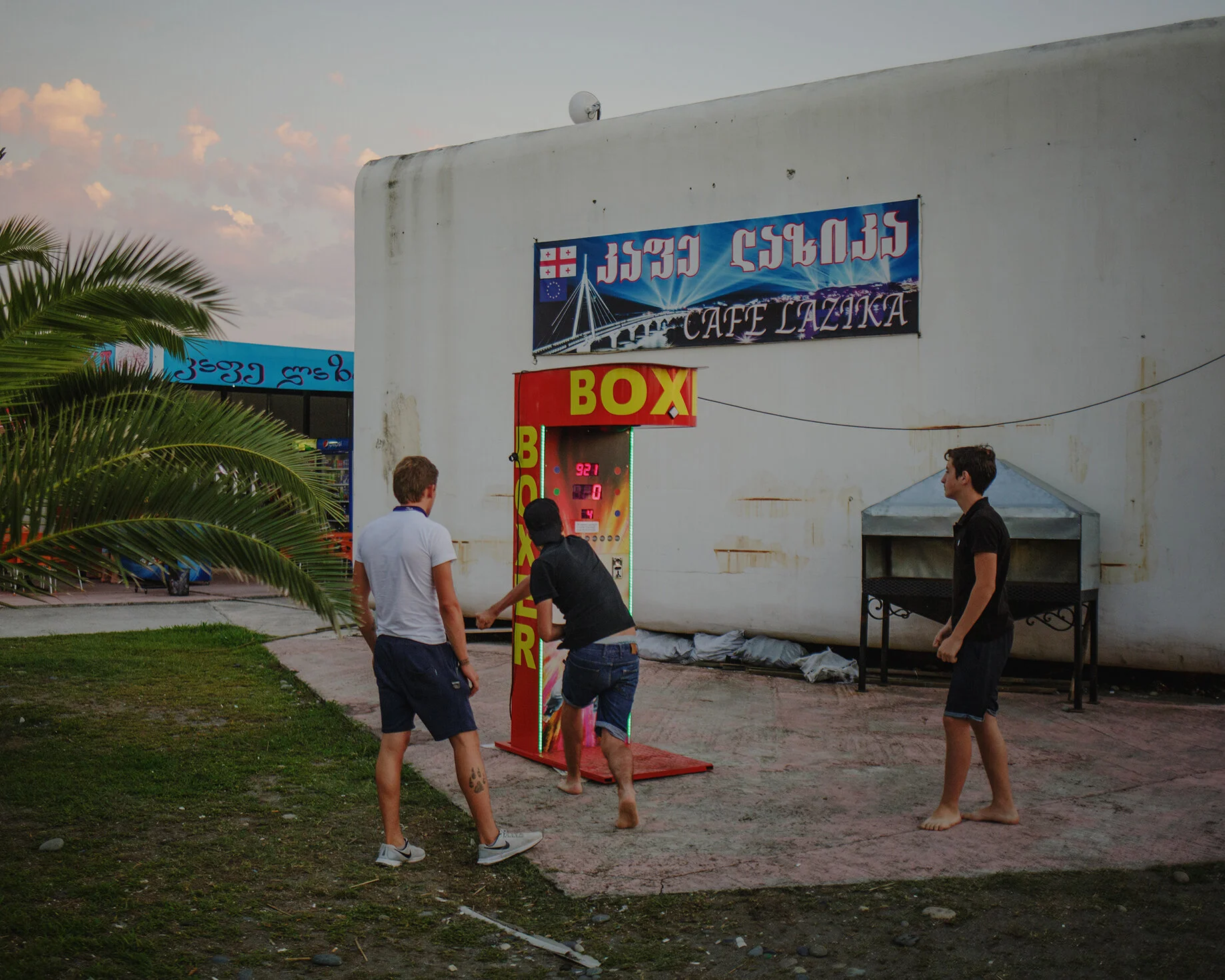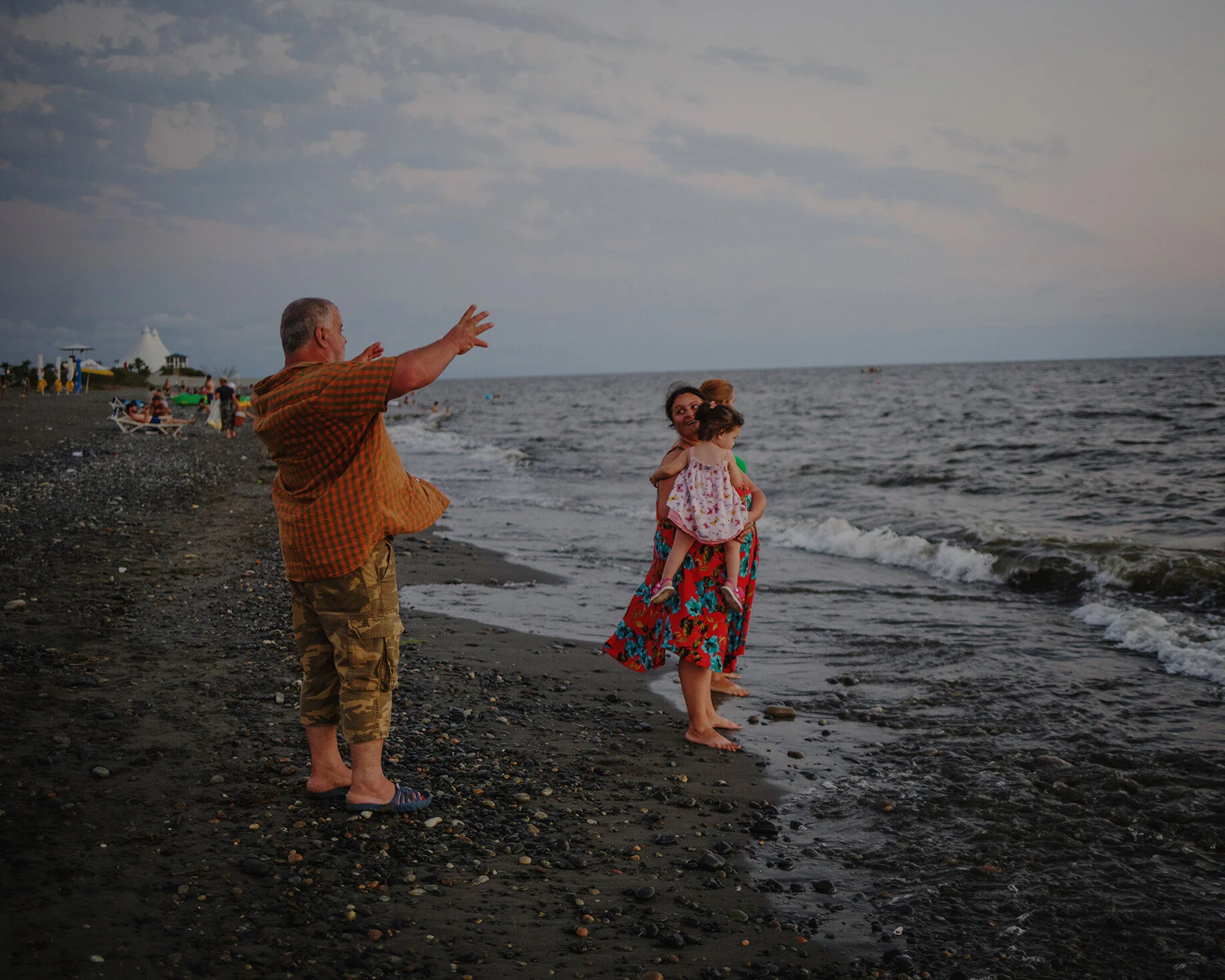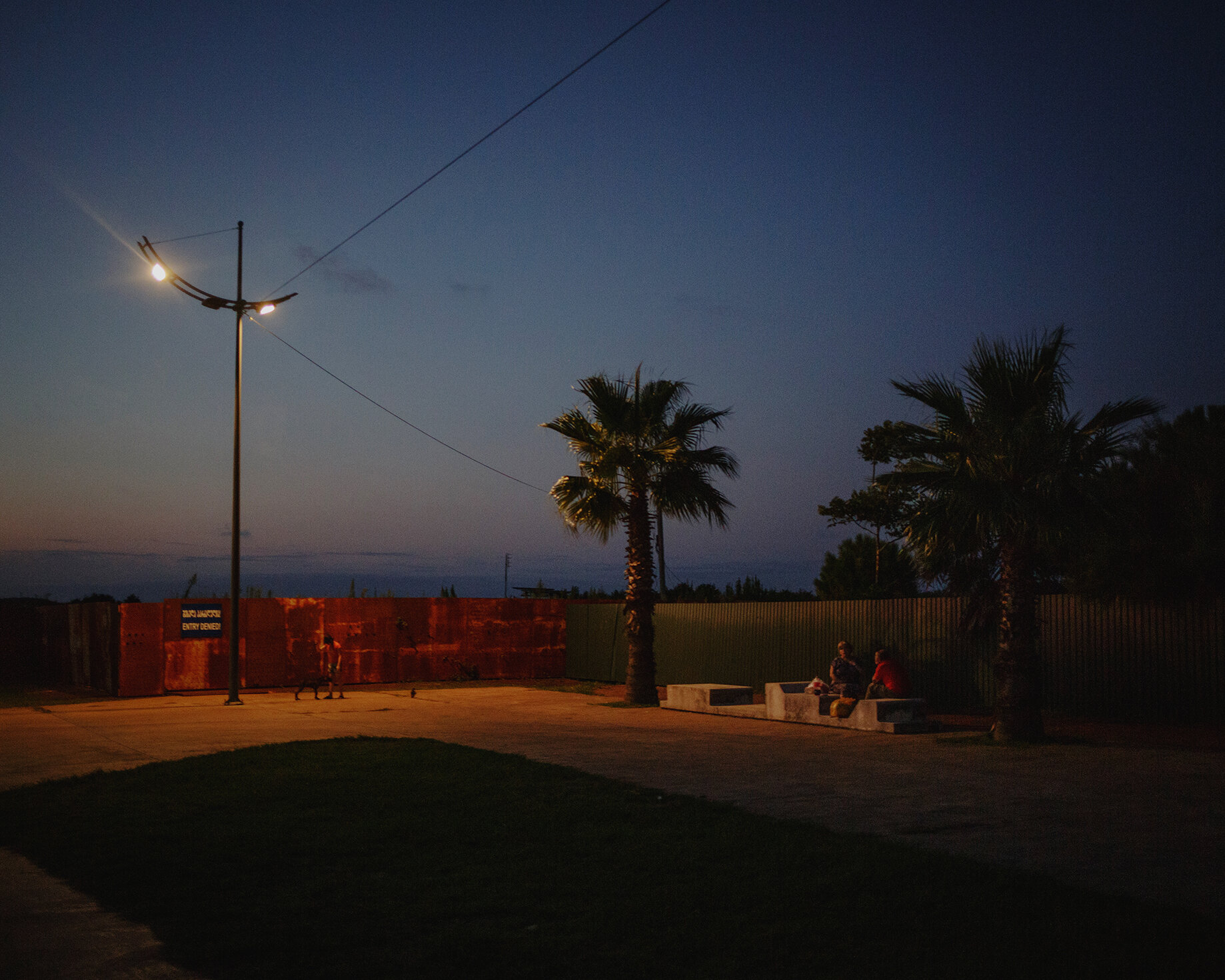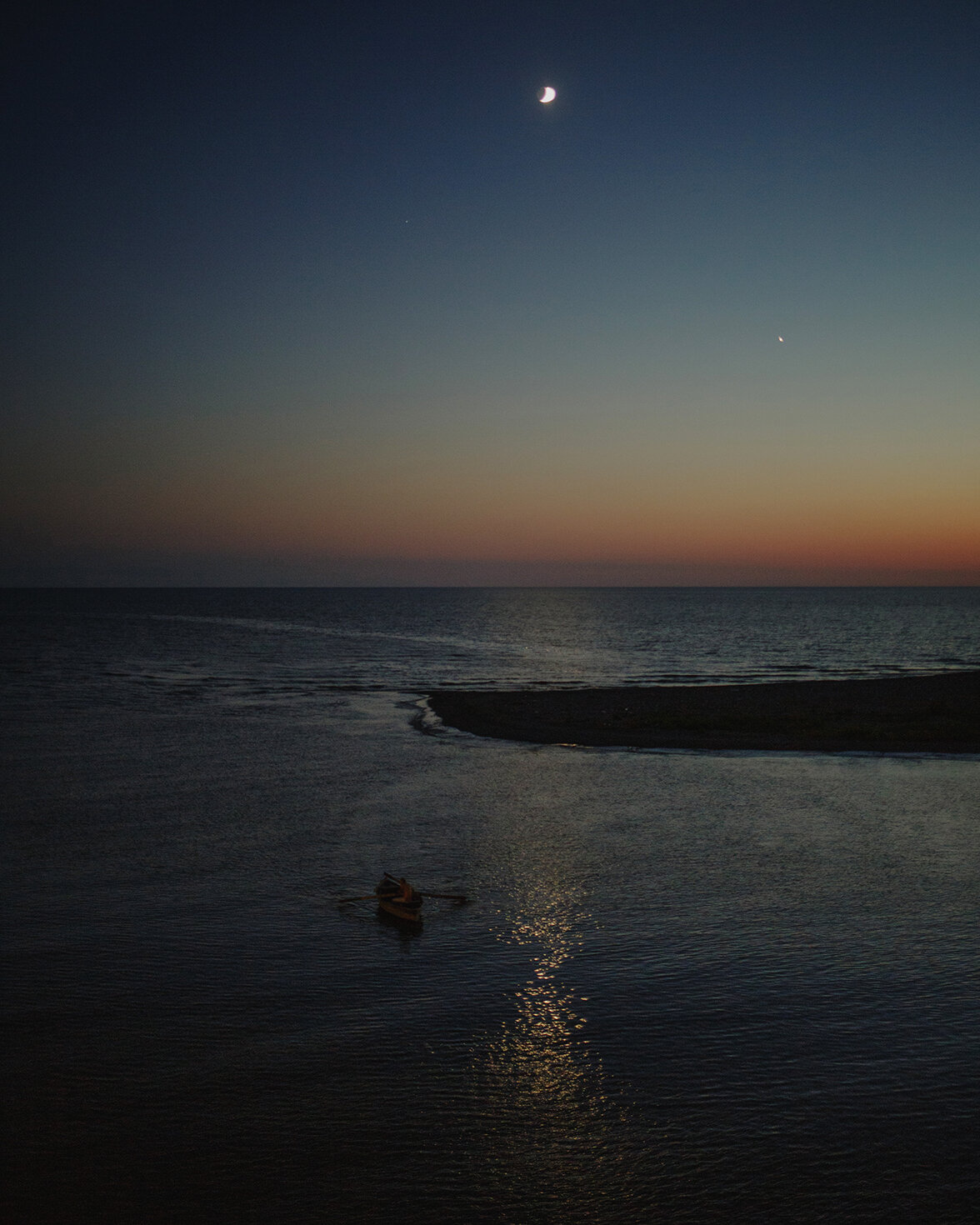Georgia(ns) - Along the Enguri
With Clément Girardot, journalist
Coming out from the glaciers of Mount Shkhara (5,193 m., the highest point of Georgia), the Enguri passes through the villages of Upper Svaneti, including the iconic Ushguli and its many medieval defense towers. Considered as the highest permanent settlement in Europe, this town is a UNESCO World Heritage Site. Svaneti attracts a growing number of tourists thanks to its alpine landscapes and its historical and religious heritage. It was in this remote region, preserved from foreign invasions, that the Georgian clergy and nobility hid their treasures. In these mountains are also perpetuated very ancient traditions combining Christianity and pagan rites.
Halfway through, the stream is blocked by the monumental Djvari dam, one of the tallest in the world, built during the Soviet period. It is a strategic infrastructure for the energy supply of Georgia but also Abkhazia, the rebel province that seceded in 1992 after a fratricidal war. Today, it symbolizes one of the rare cases of “transboundary” cooperation because part of the water in the reservoir is diverted to Abkhazia, where power plants are located. A few kilometers from the dam, Potskho Etseri is the town which was built for the dam’s employees, today it is in a decrepit state after having been abandoned by the state and it shelters refugees from the Abkhaz conflict who survive here in deprivation.
A little further south, many Georgians chased out of Abkhazia during the 1992 war found refuge in the plains of Samegrelo. They can not legally go back to the other side of the river which has become a “border”, locked by a contingent of Russian soldiers. They can not return to their homes, gather on the graves of their ancestors, visit friends and relatives who remained in Abkhazia. On the Georgian side, the area is weakly militarized, an EU observer patroling along the river.
Despite tensions, Georgia wants to develop this region adjacent to the Enguri, including through projects supposed to attract the Abkhaz who are allowed to come to the territory controlled by Tbilisi. At the mouth of the river, the construction of a large industrial port in the village of Anaklia has just begun, it raises many hopes. This infrastructure will be integrated into the network of new silk routes. This port is added to a project of former president Mikheil Saakashvili who wanted to turn Anaklia into a futuristic seaside resort, a way to show the Abkhaz that their future is rather alongside Georgians than Russians.
10 after the war of 2008, Georgia developed strongly thanks to a boom of tourism and the geostrategic location of the country which makes it a corridor between Europe and Asia. On the other hand, the painful Abkhazian problem and the issue of the return of the refugees seem more than ever blocked.
Clément Girardot

